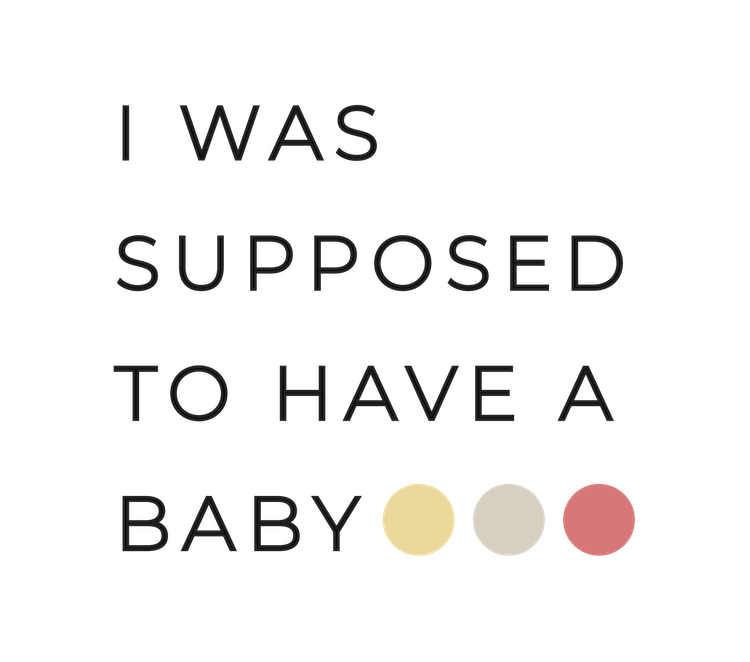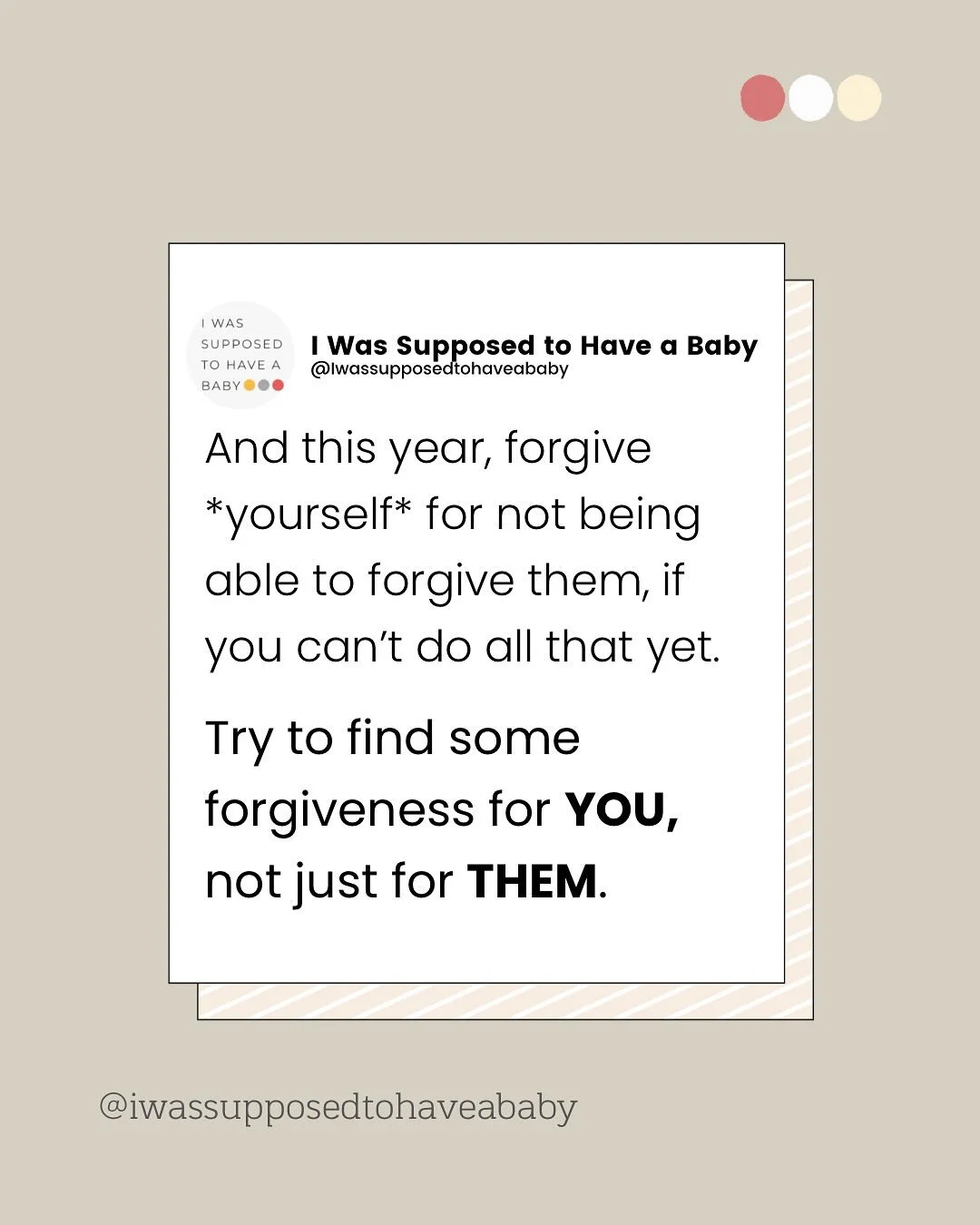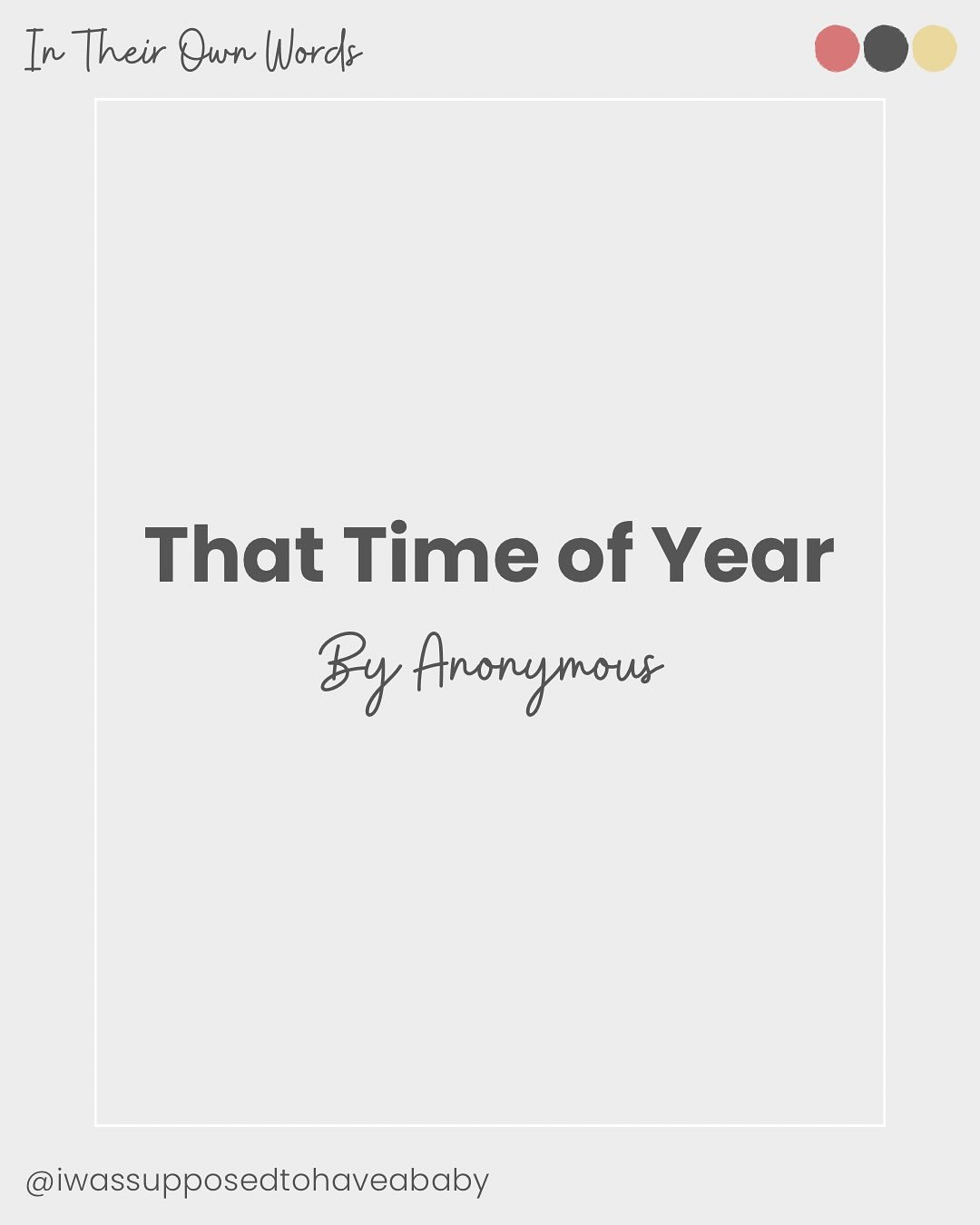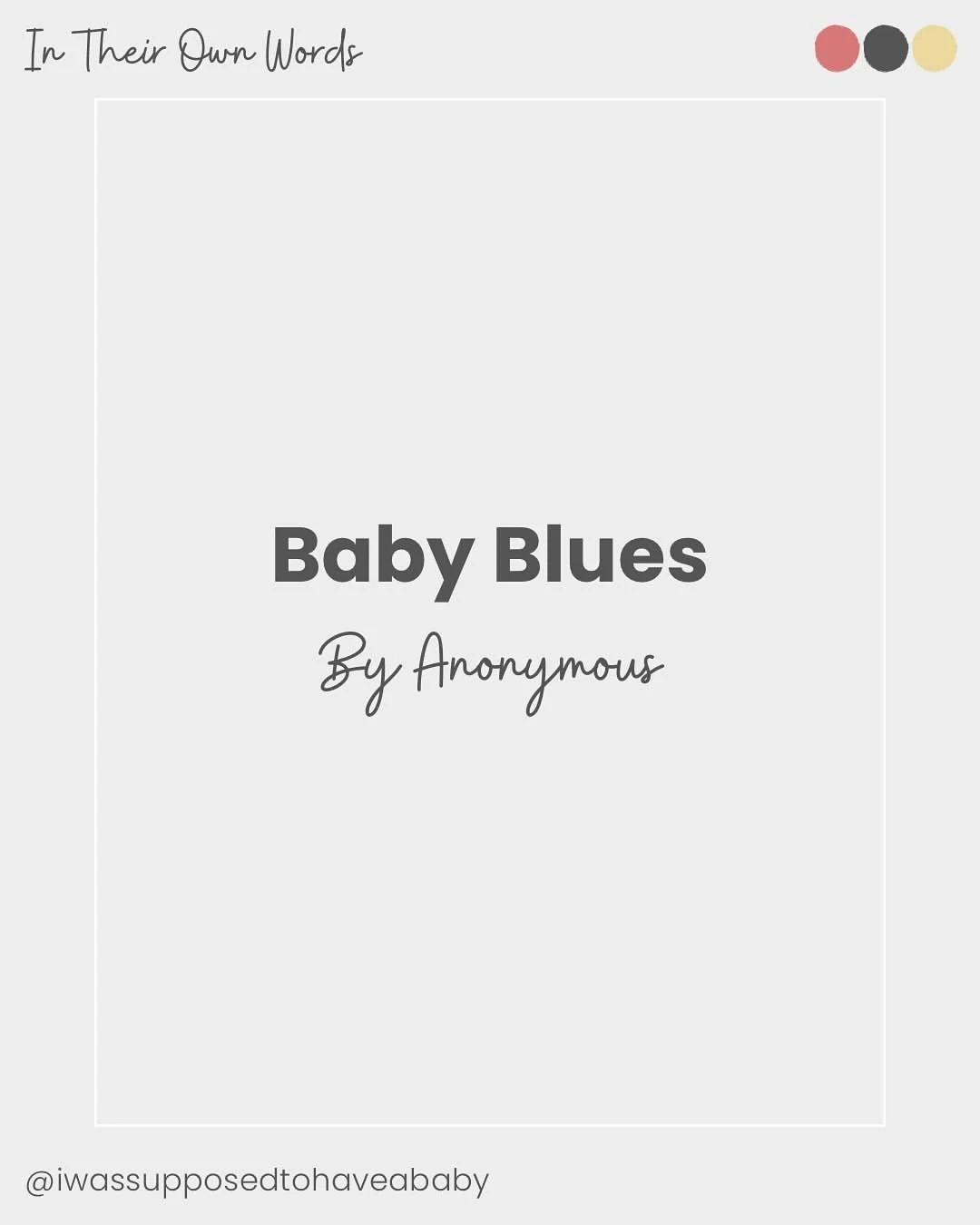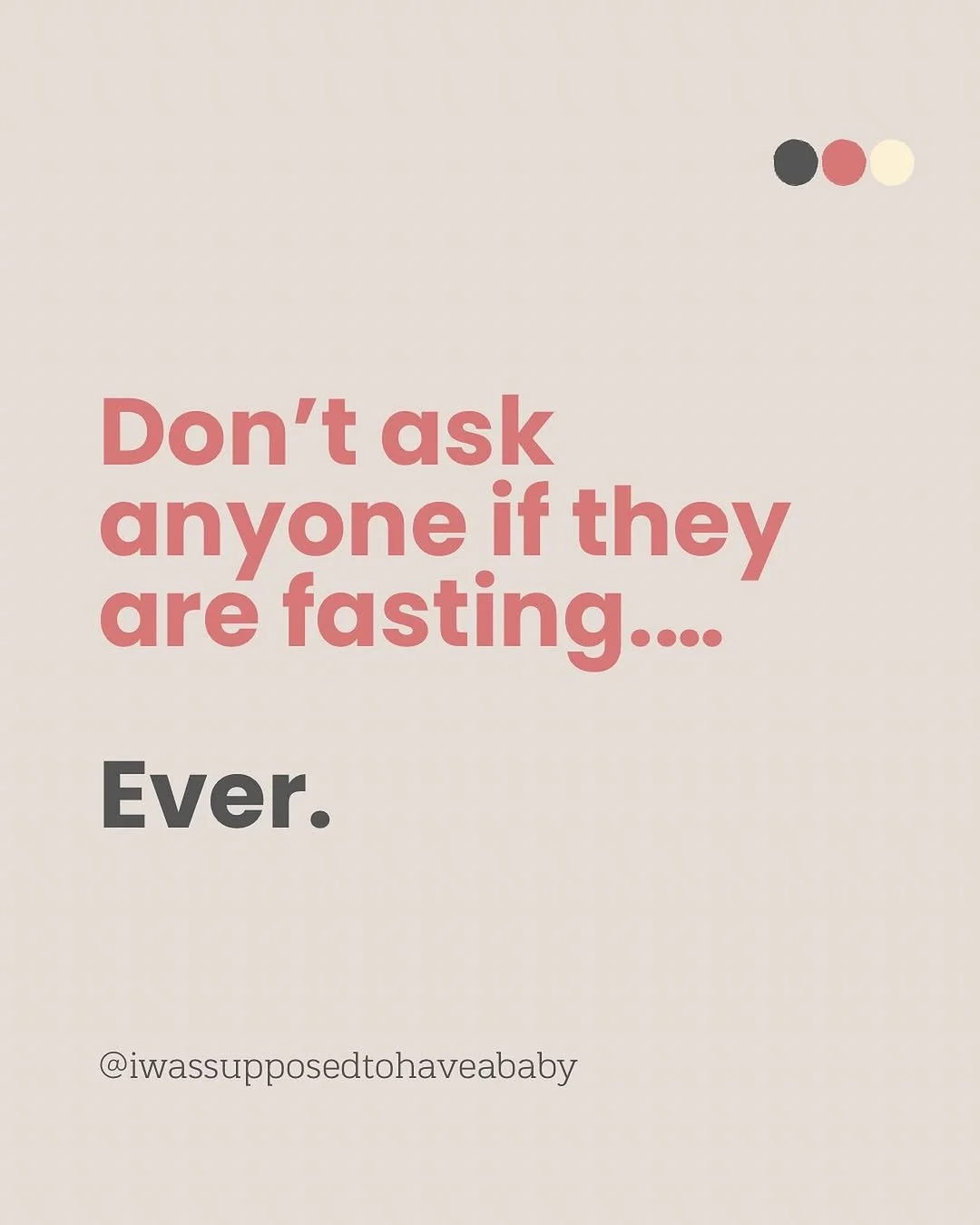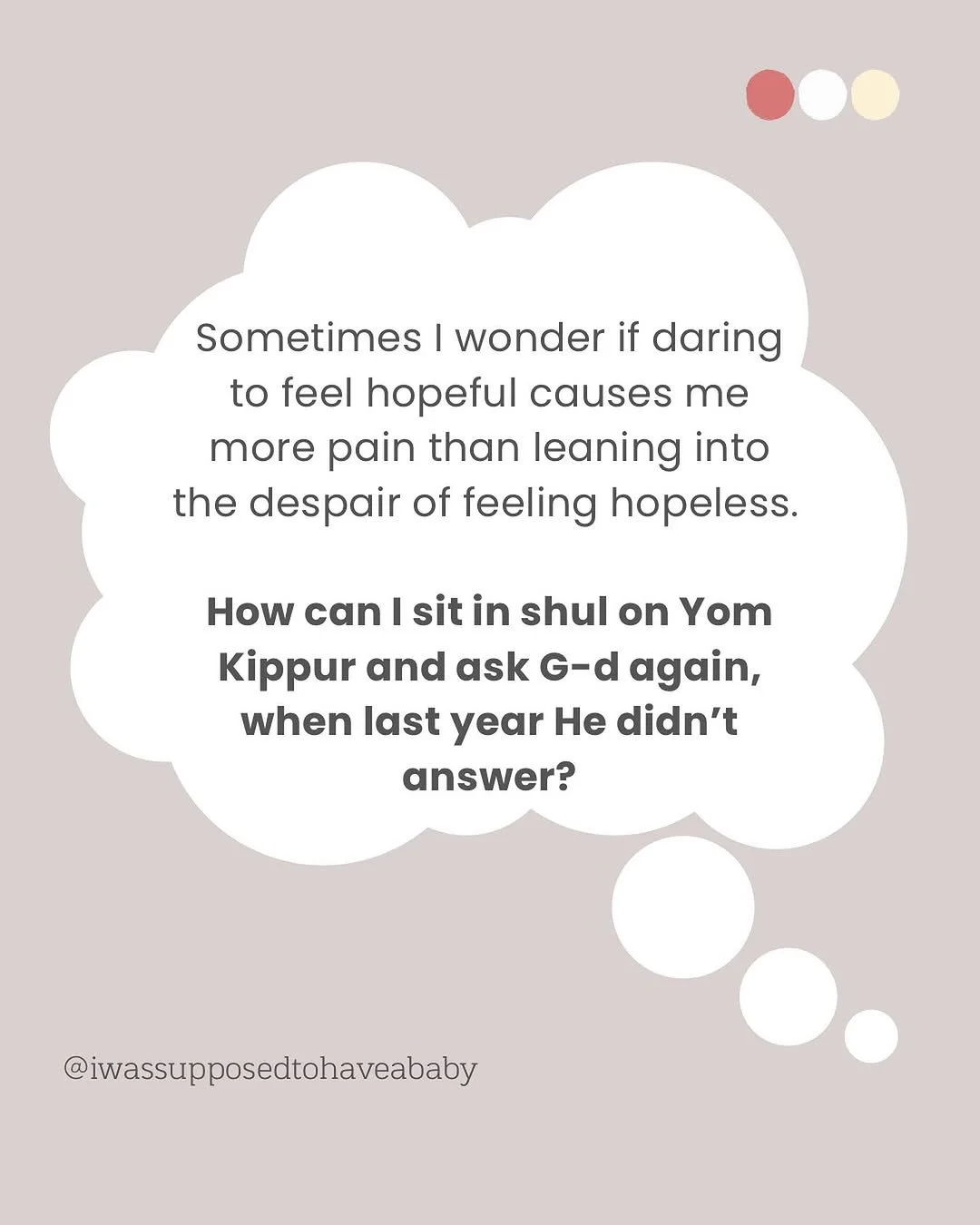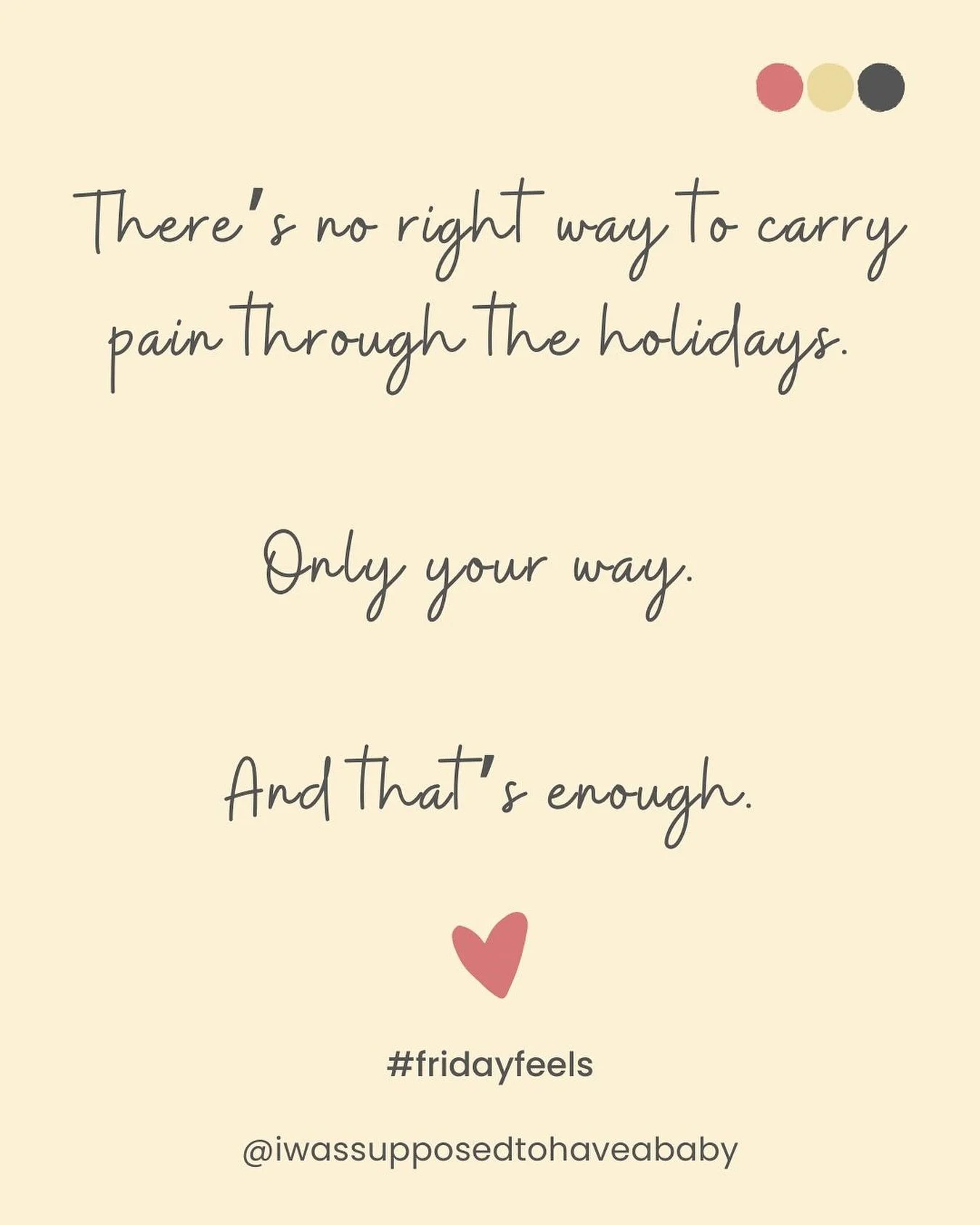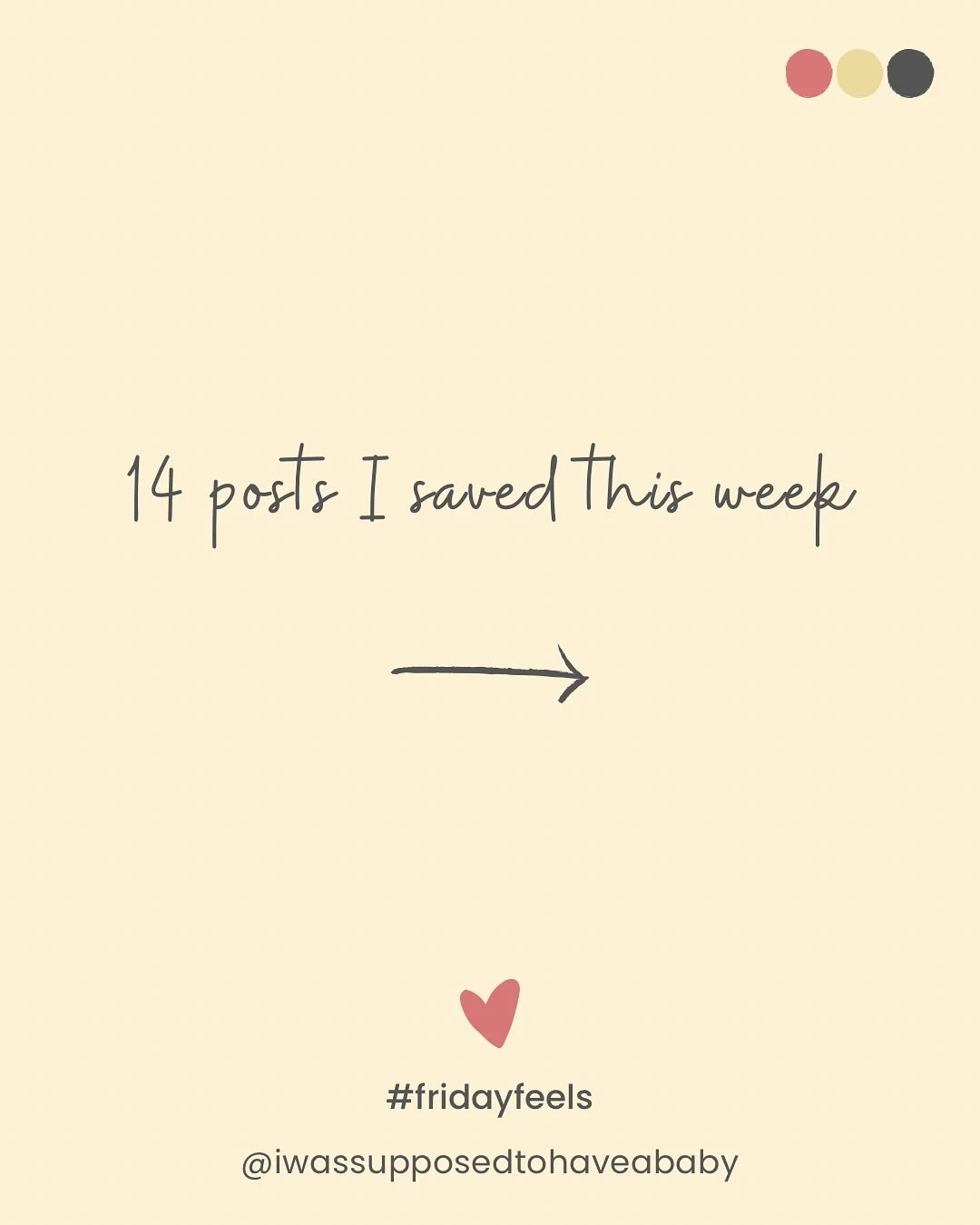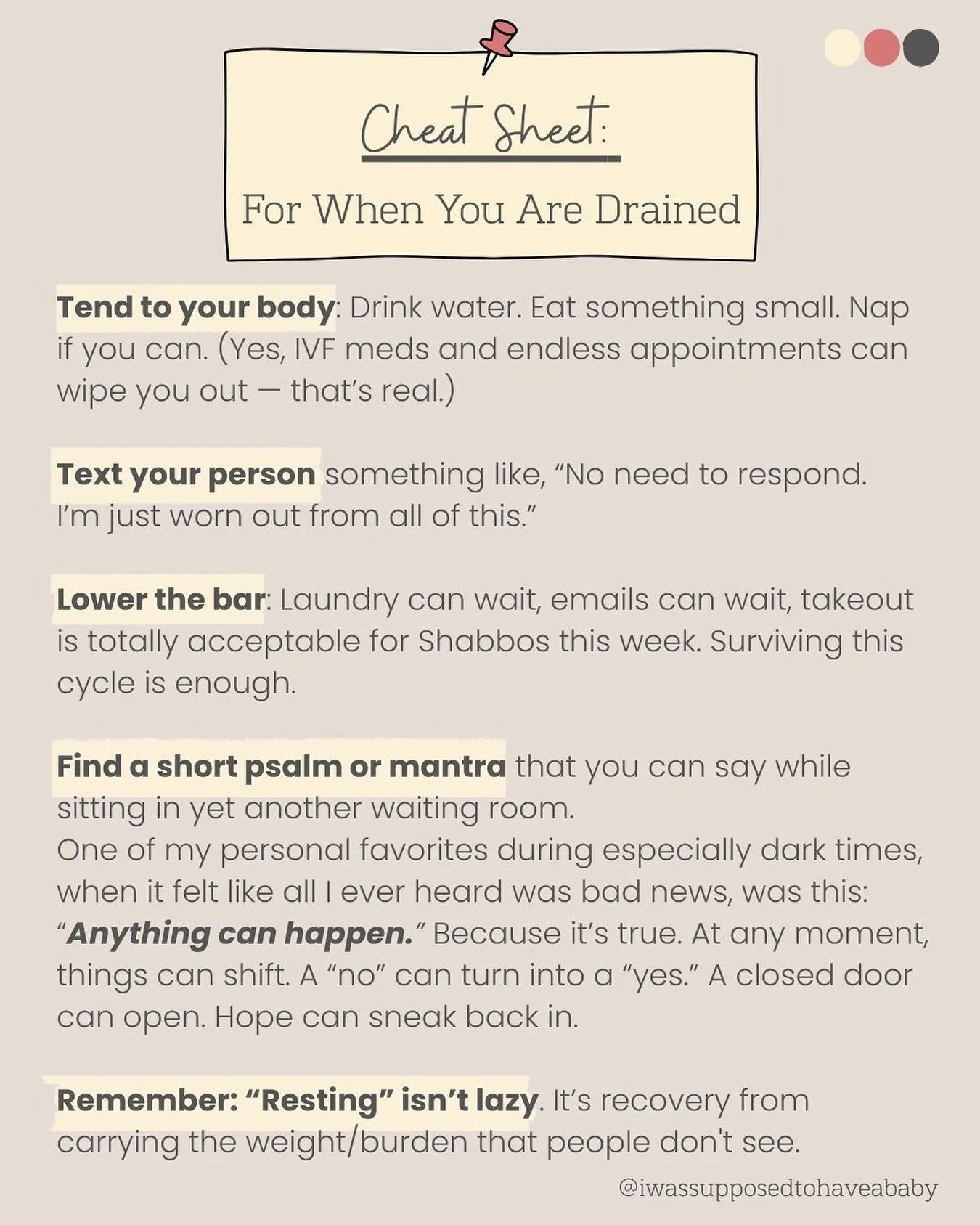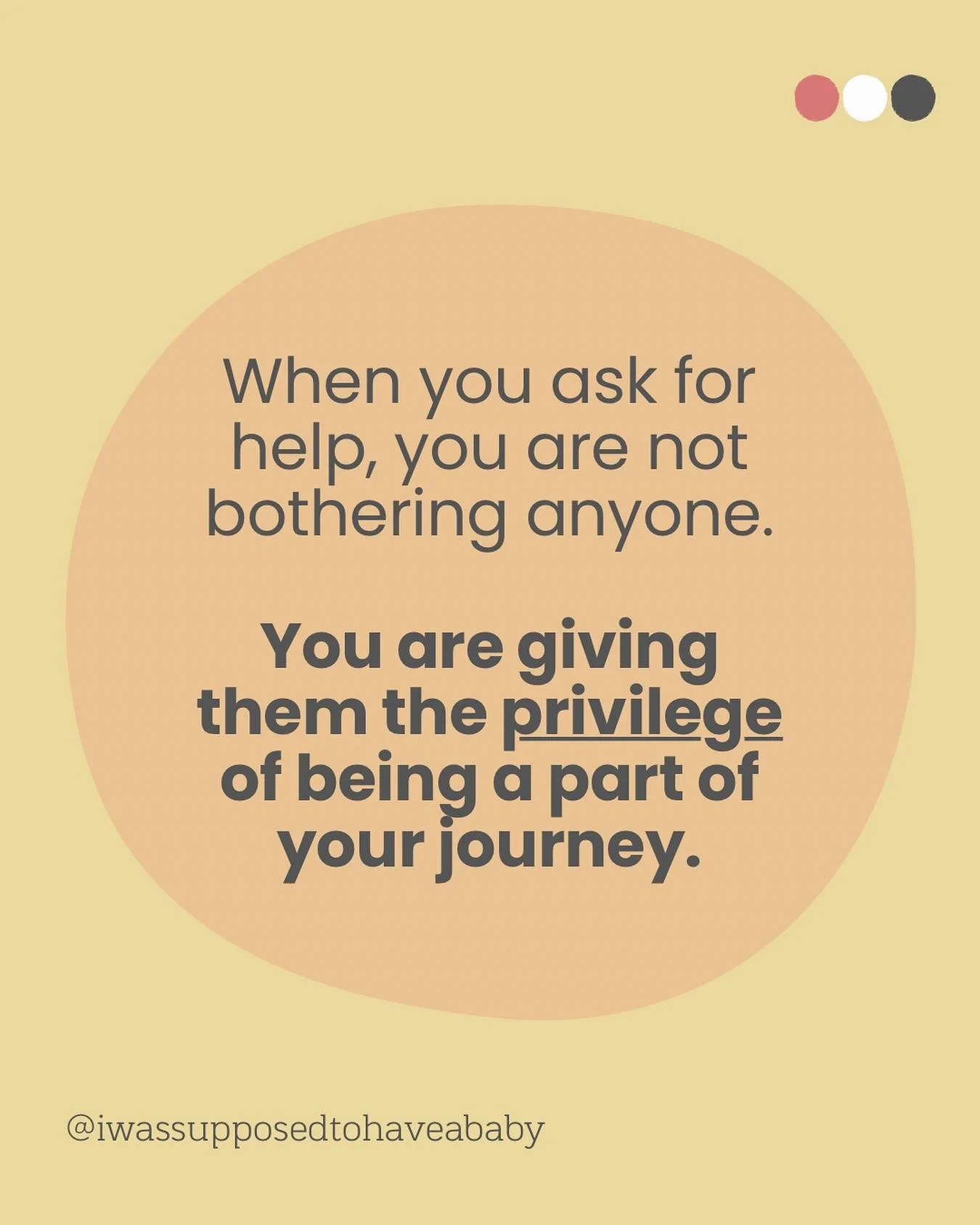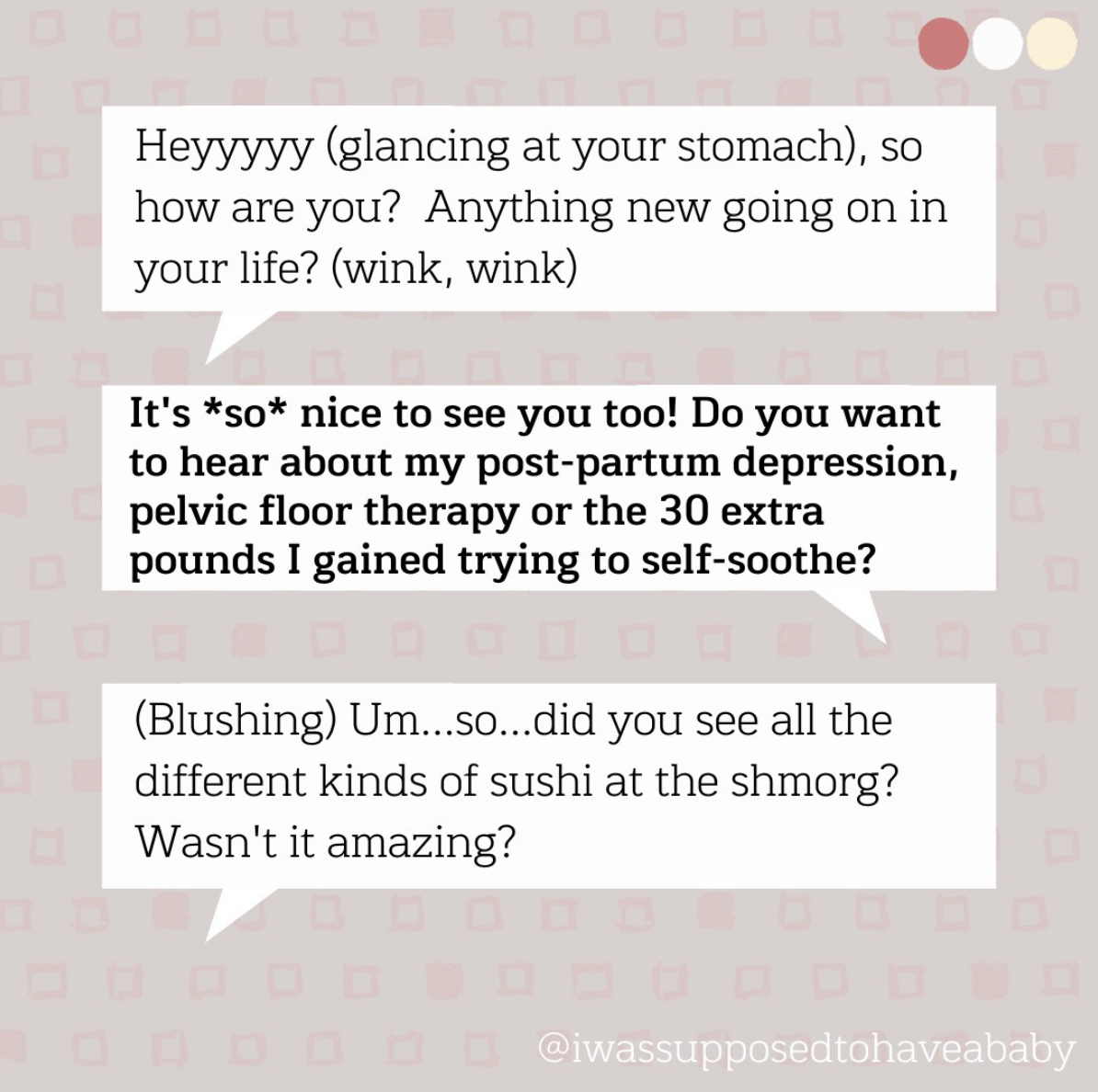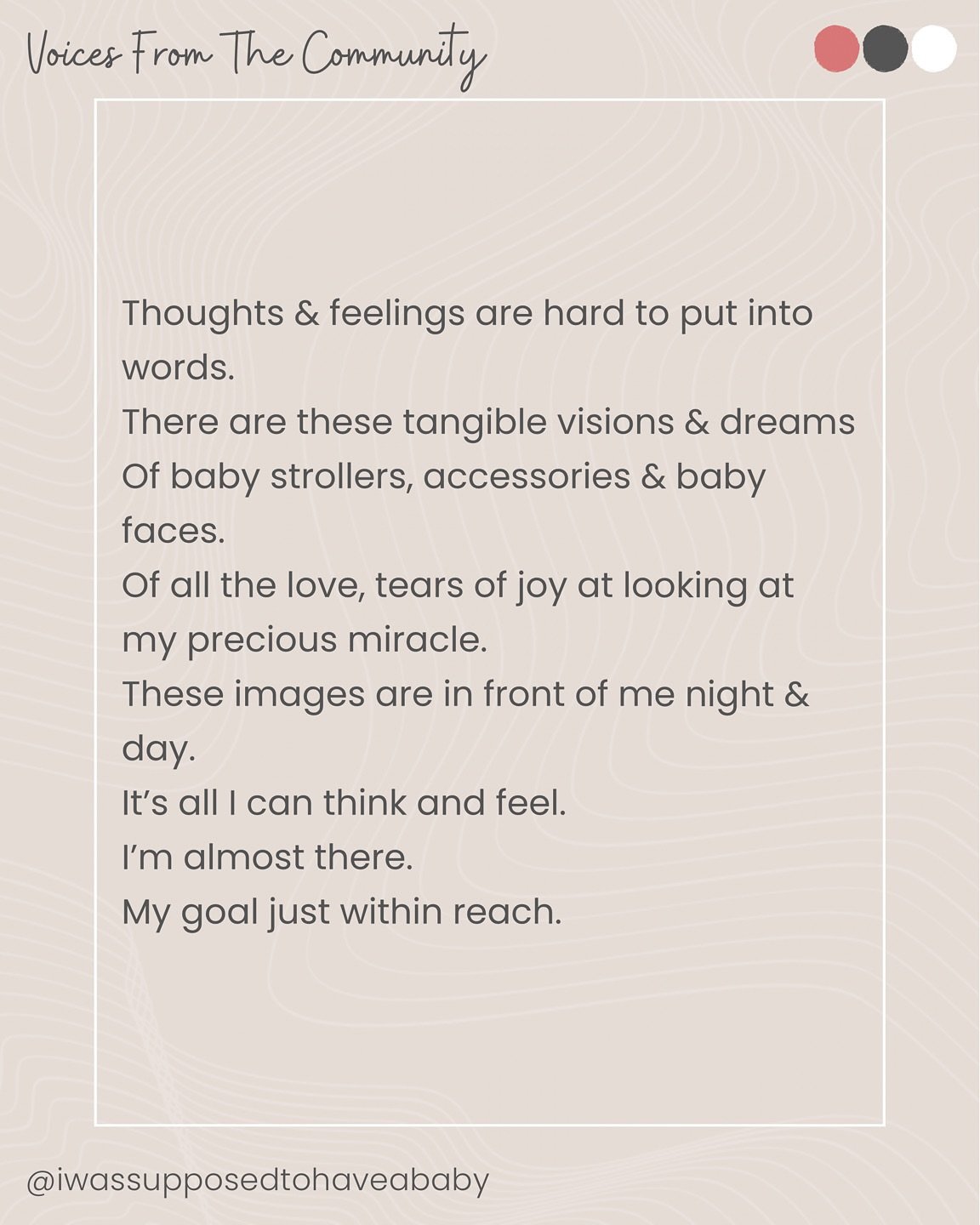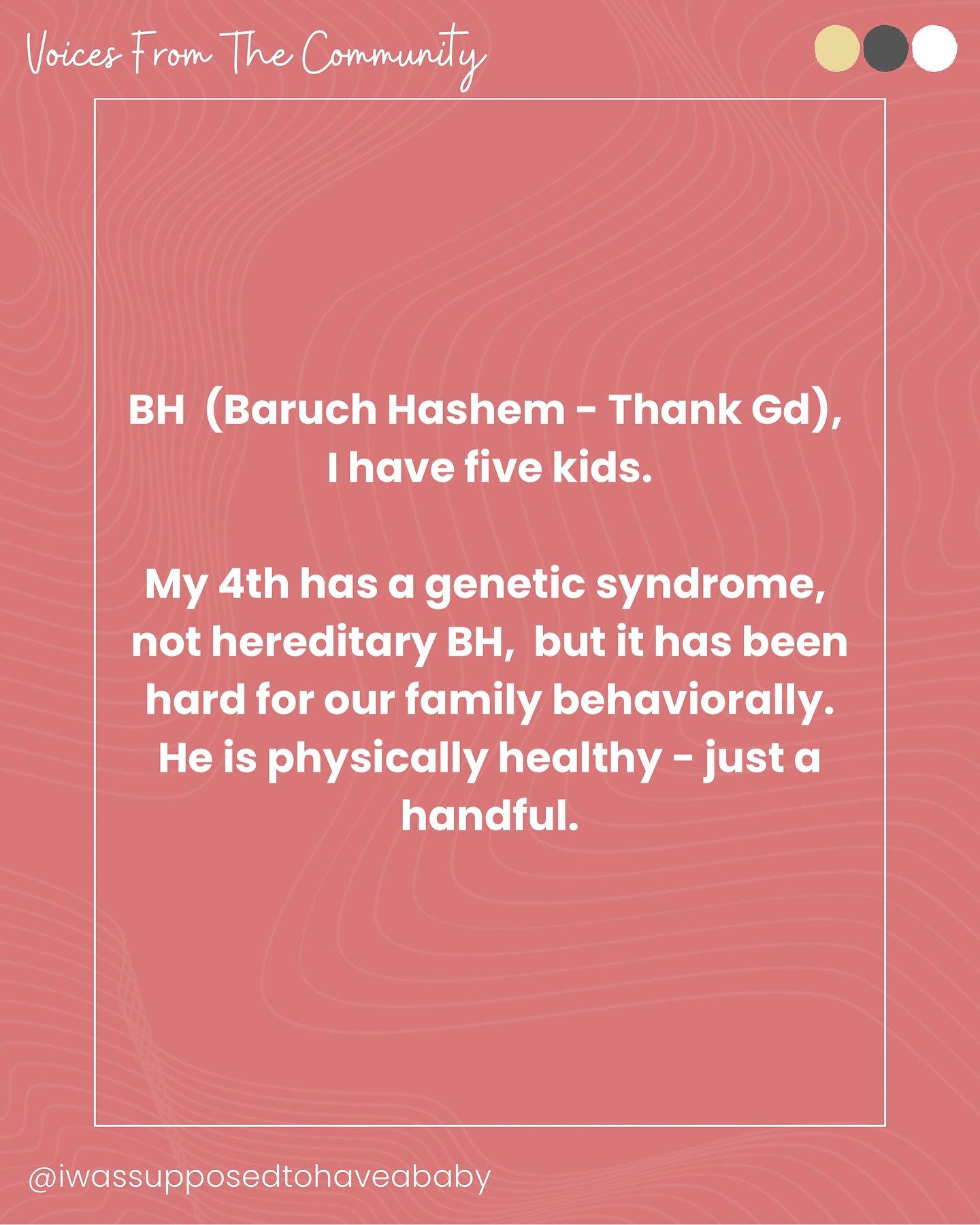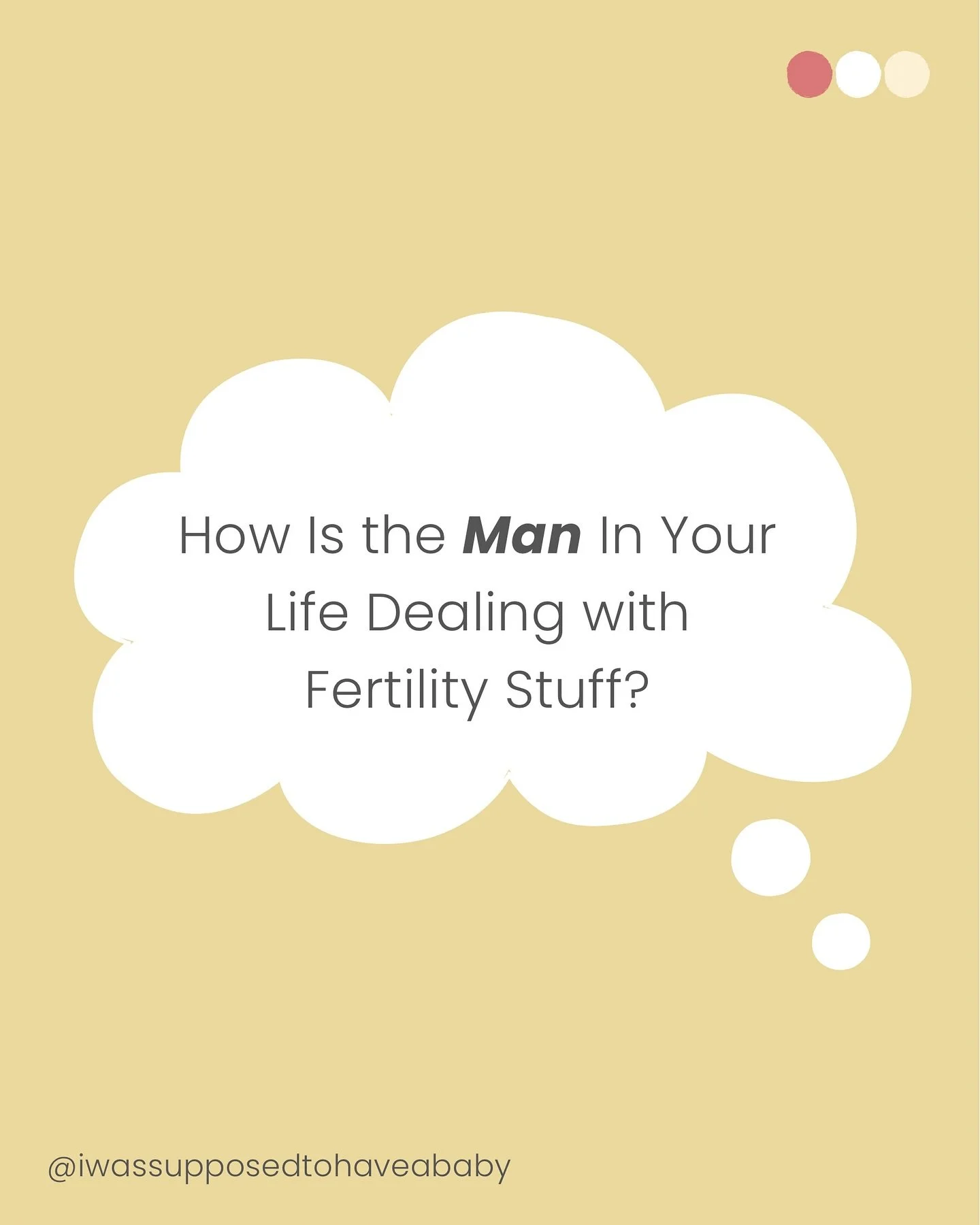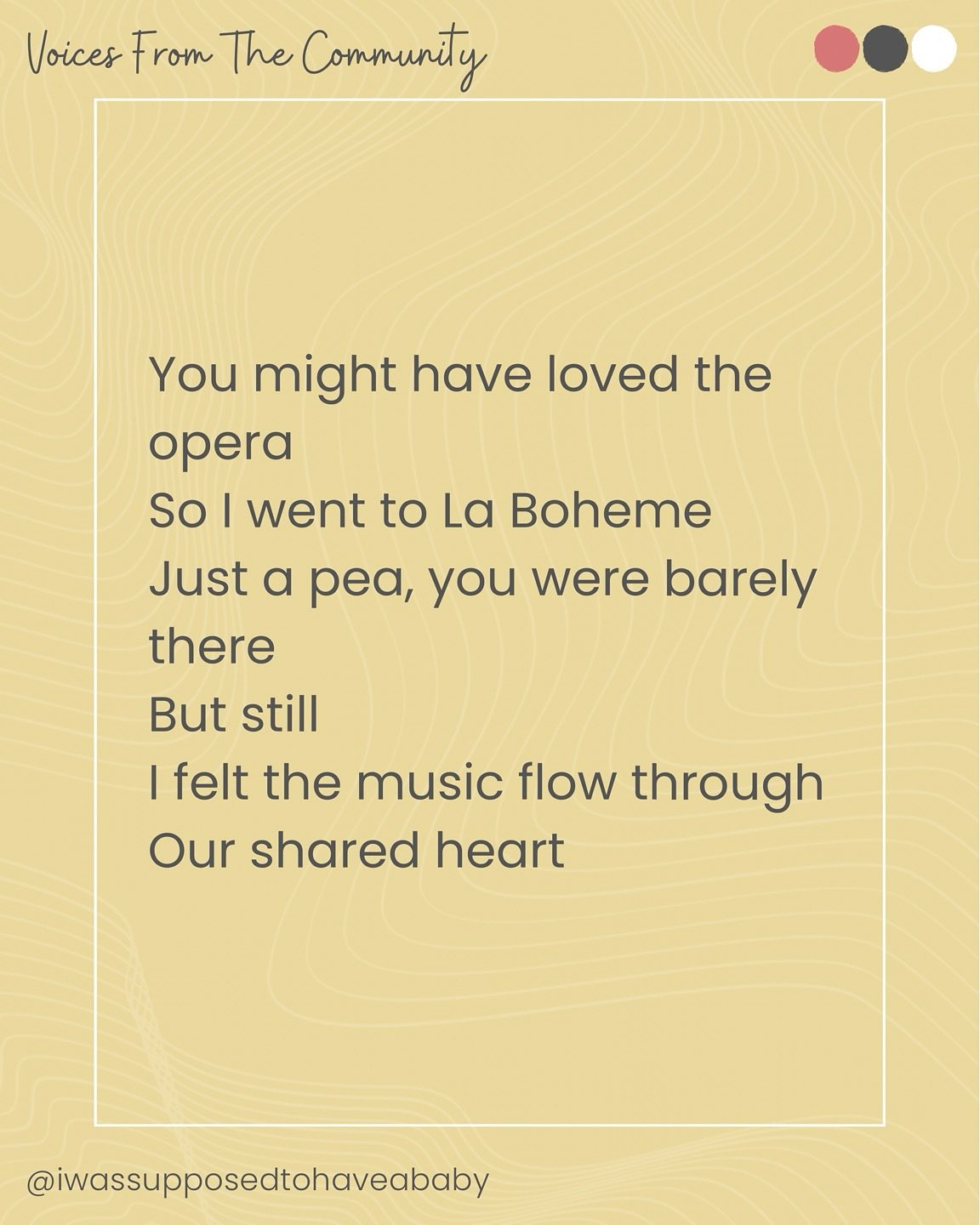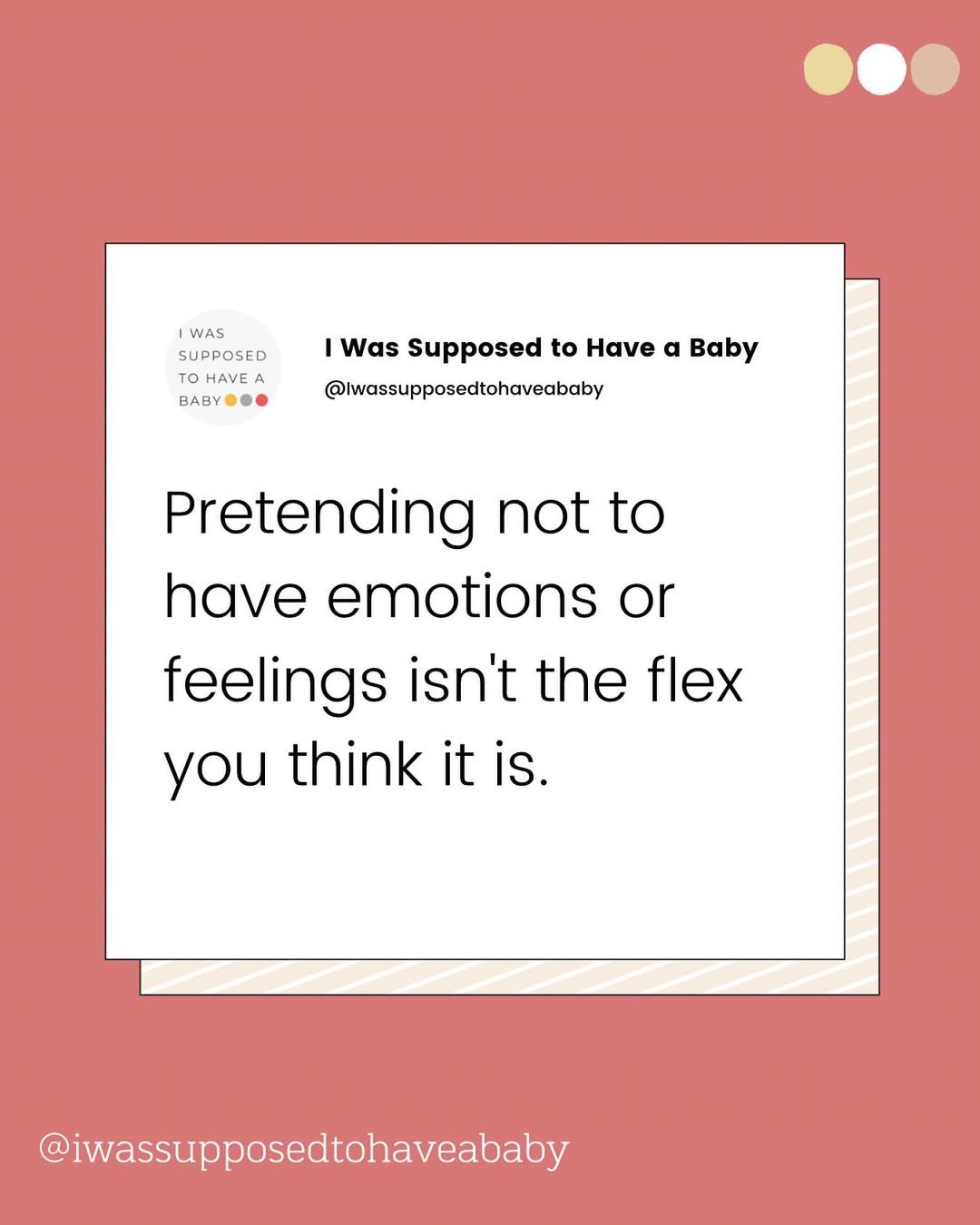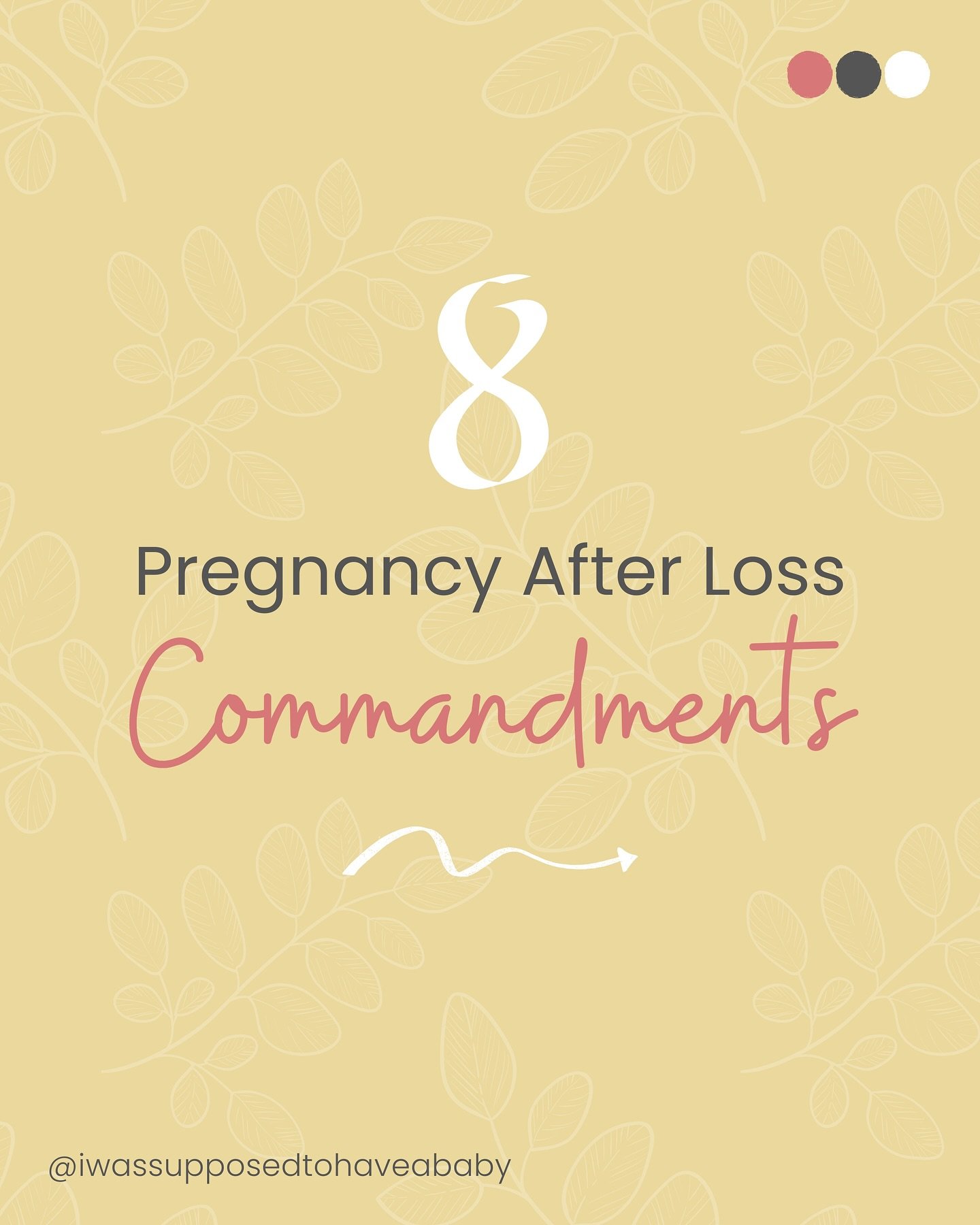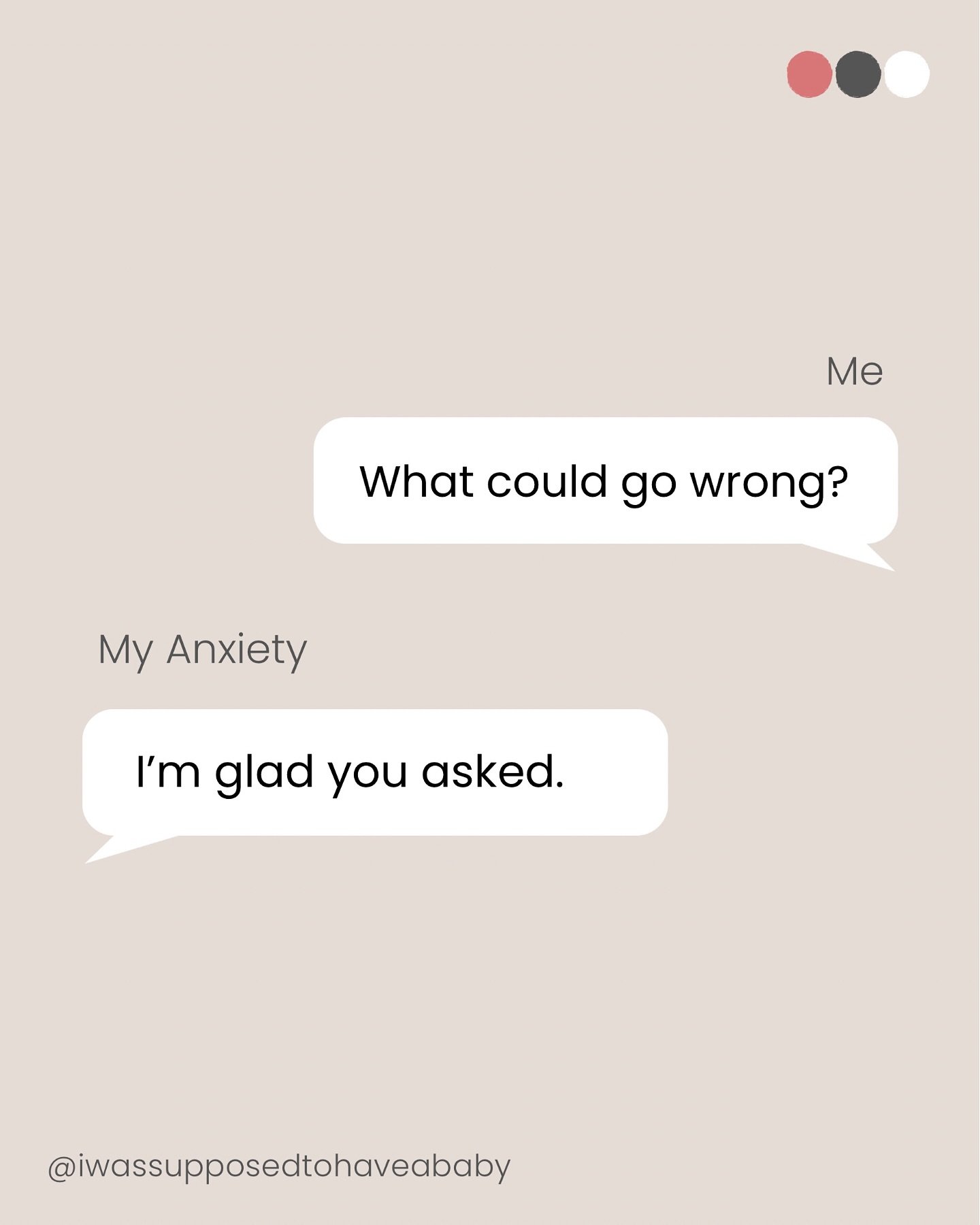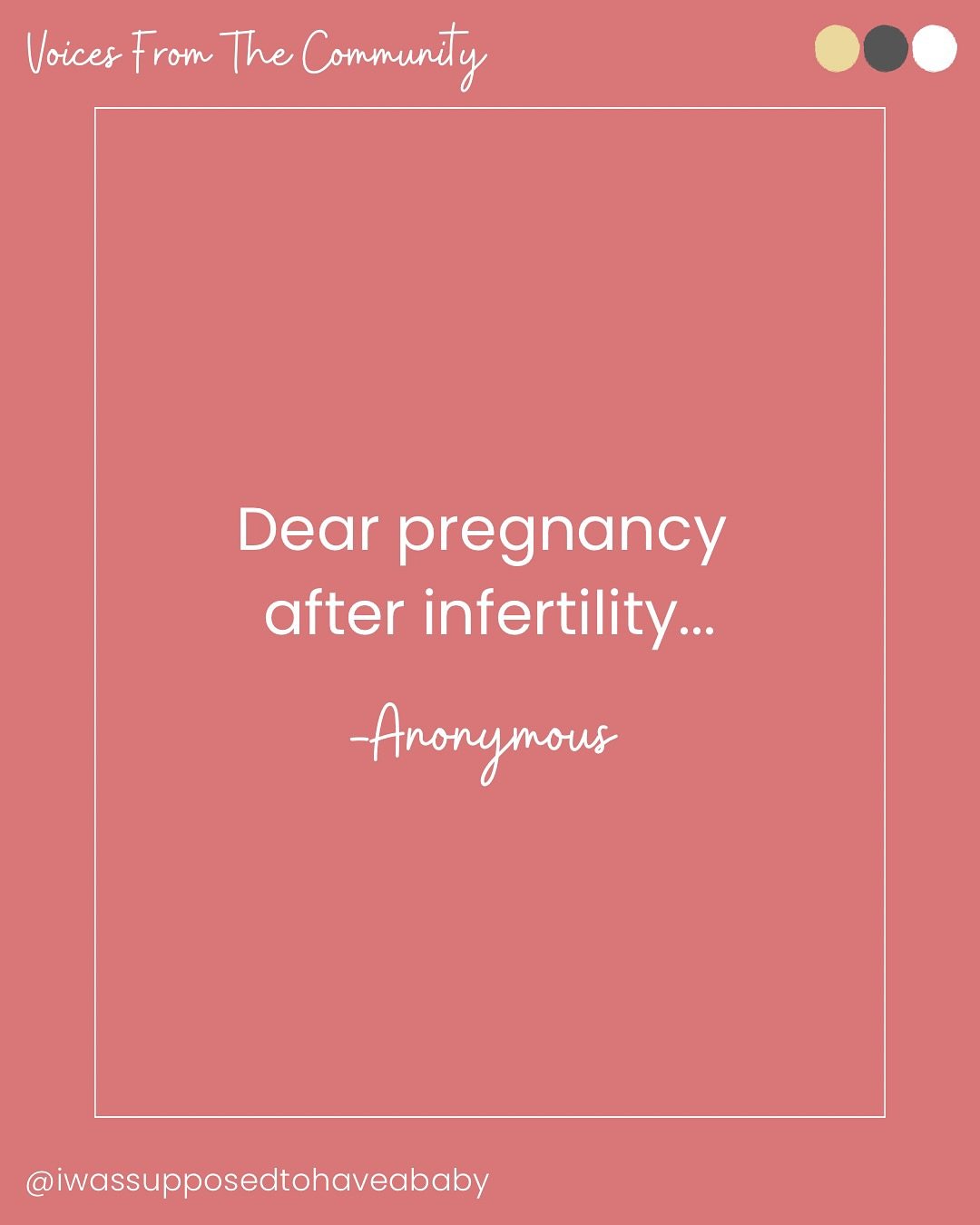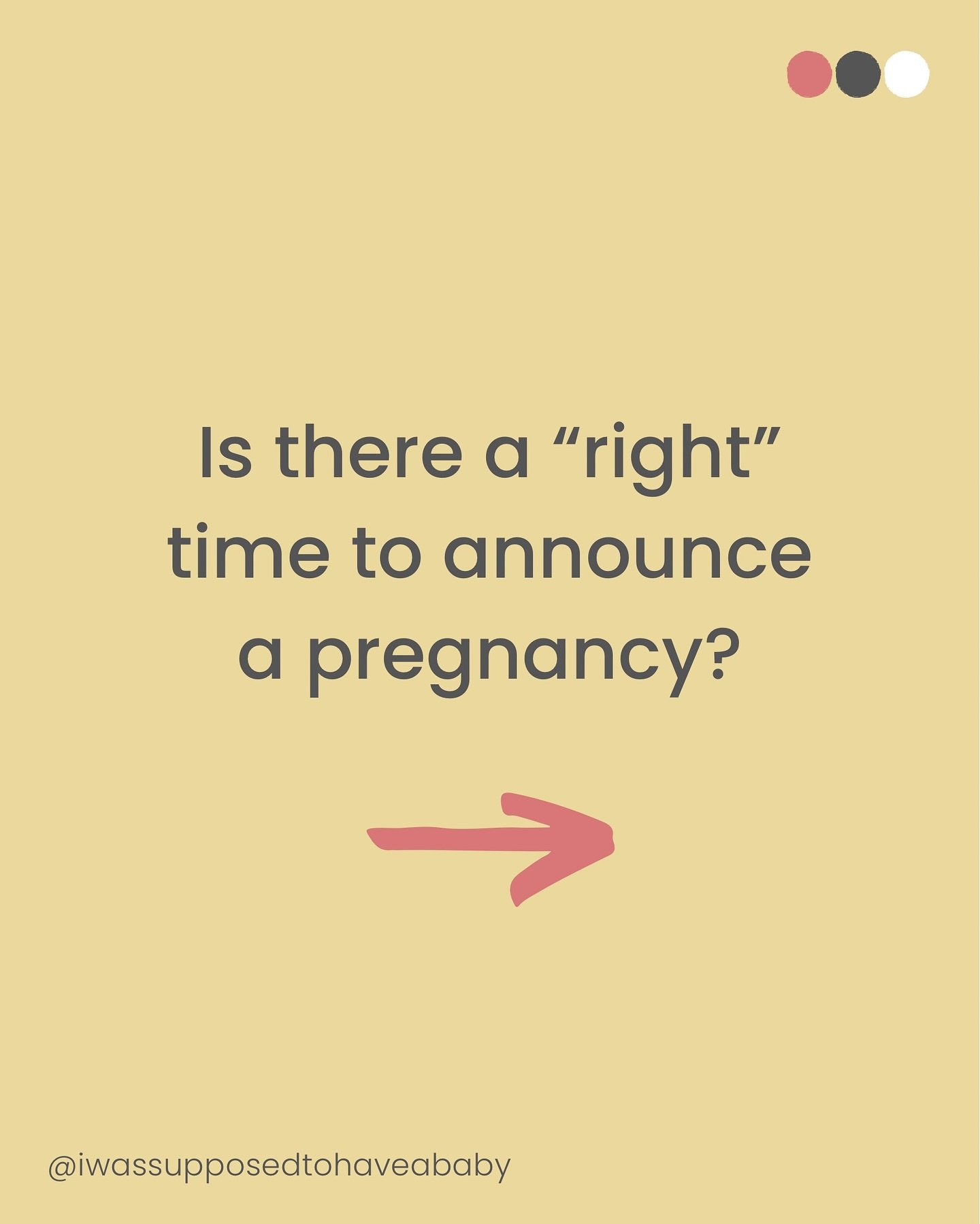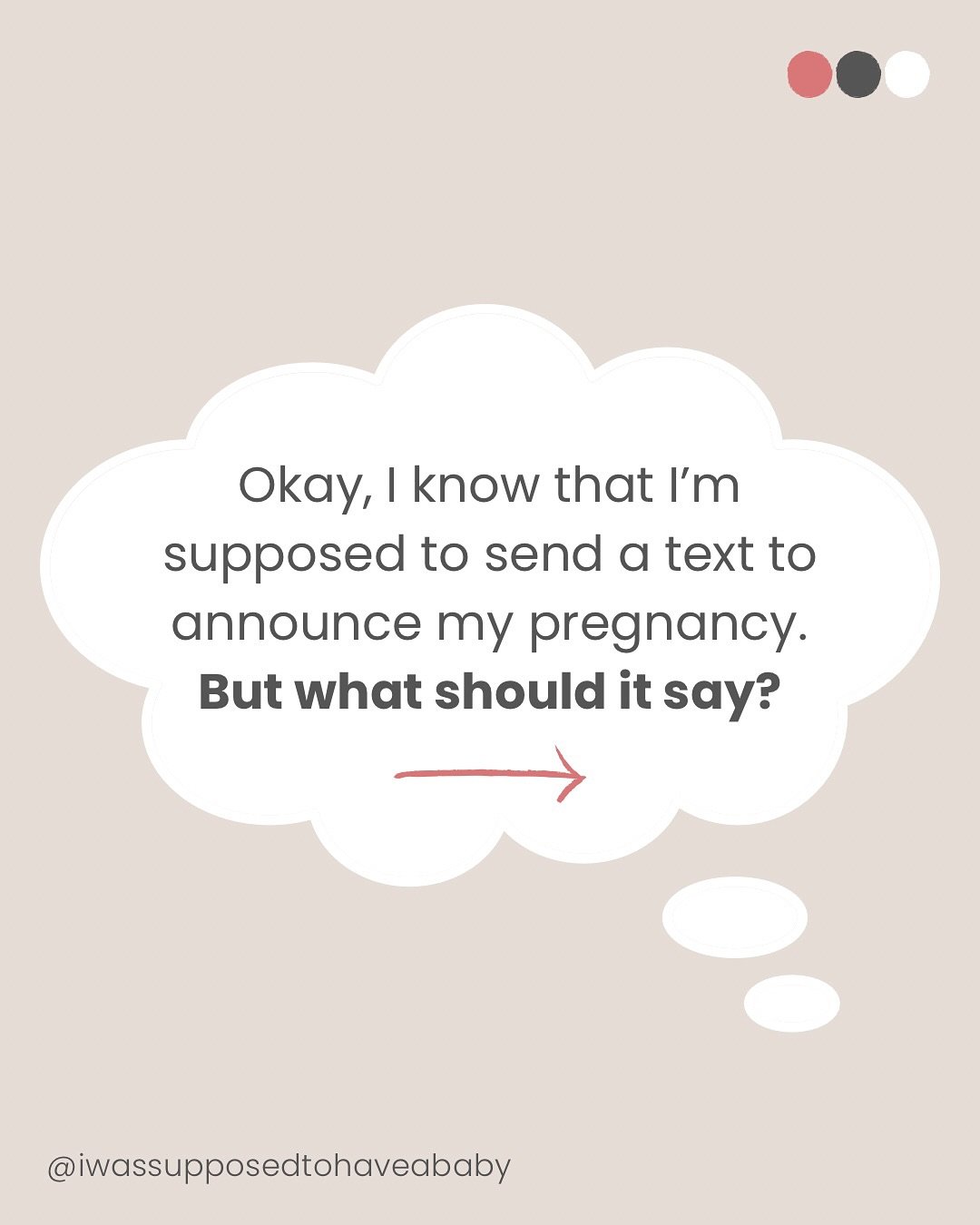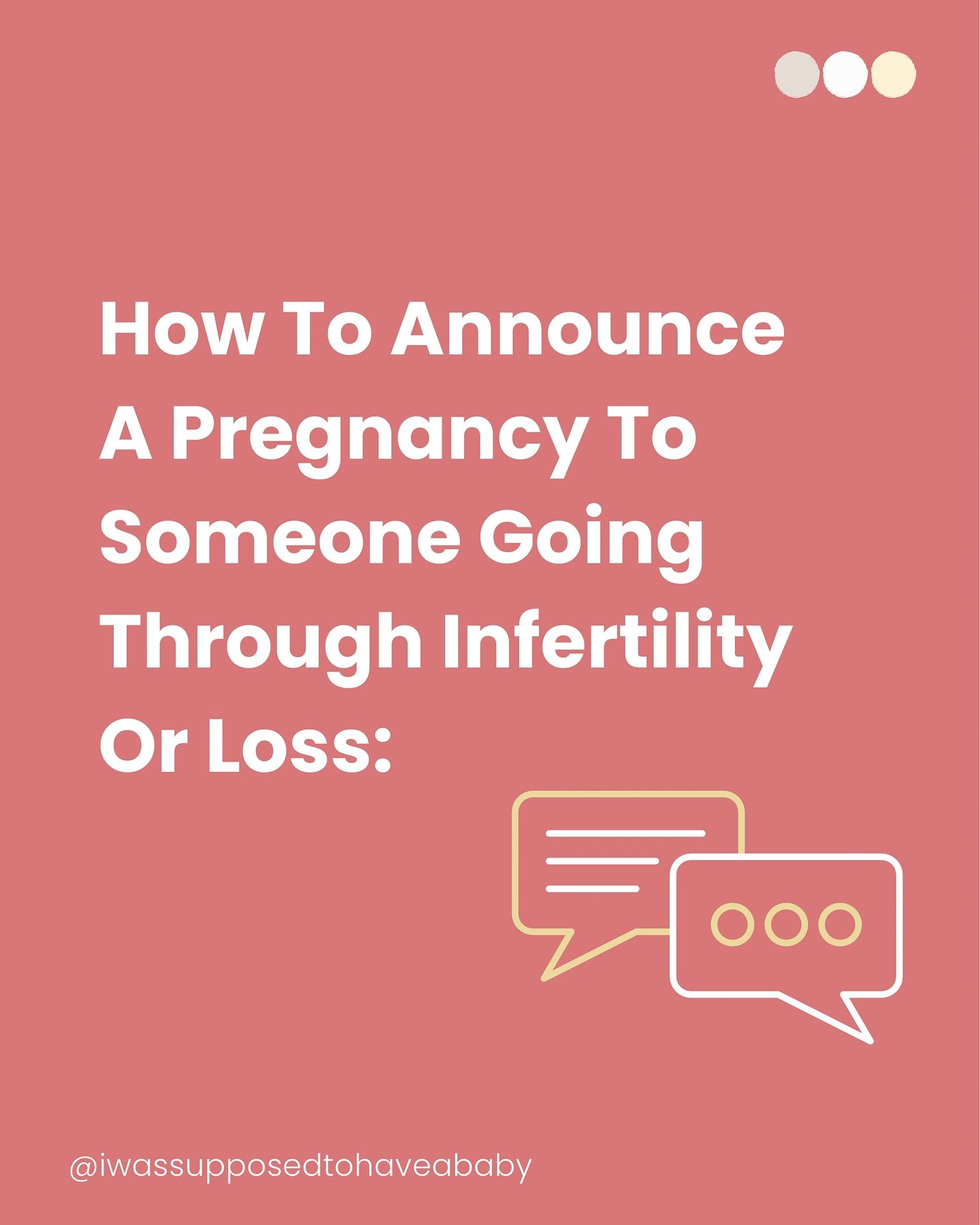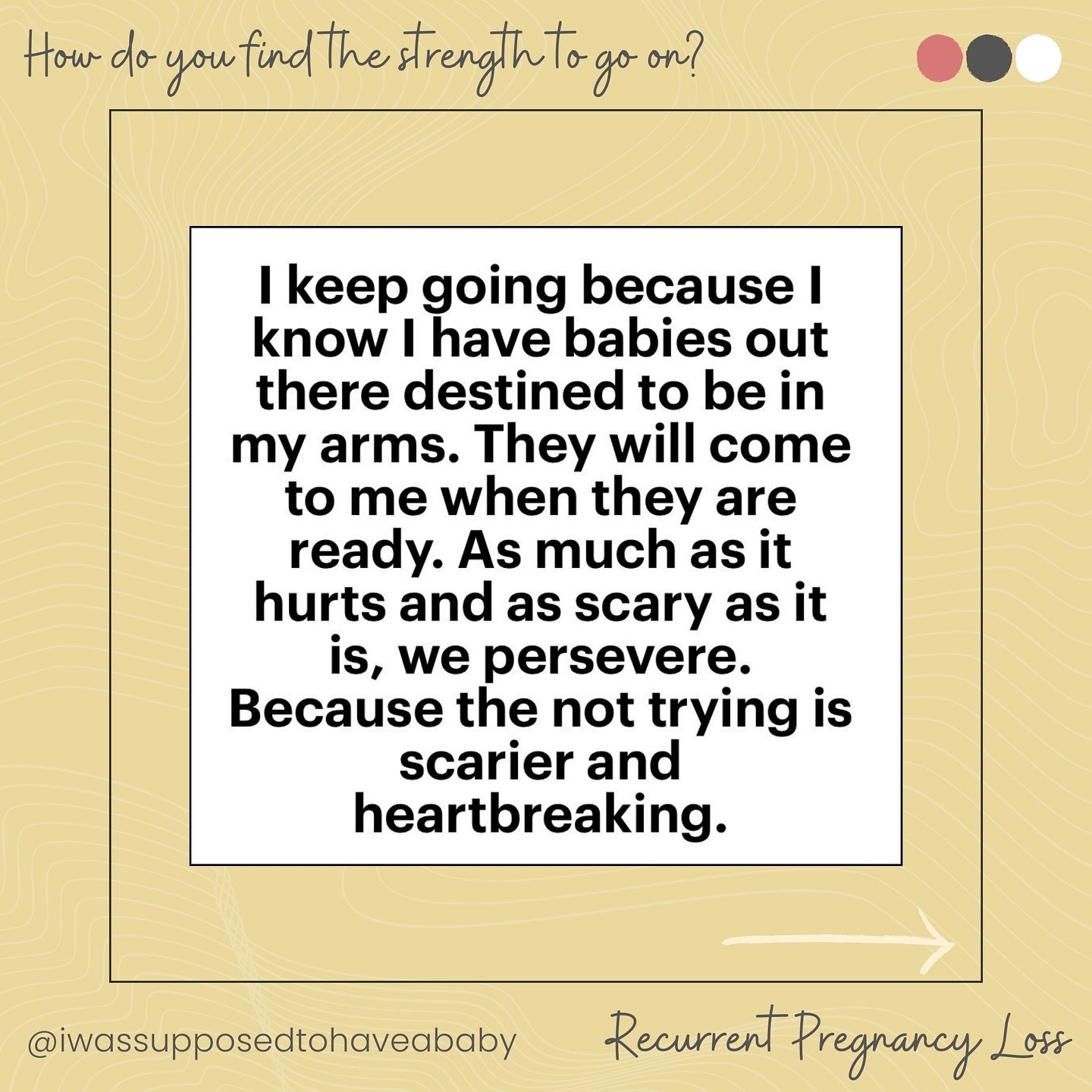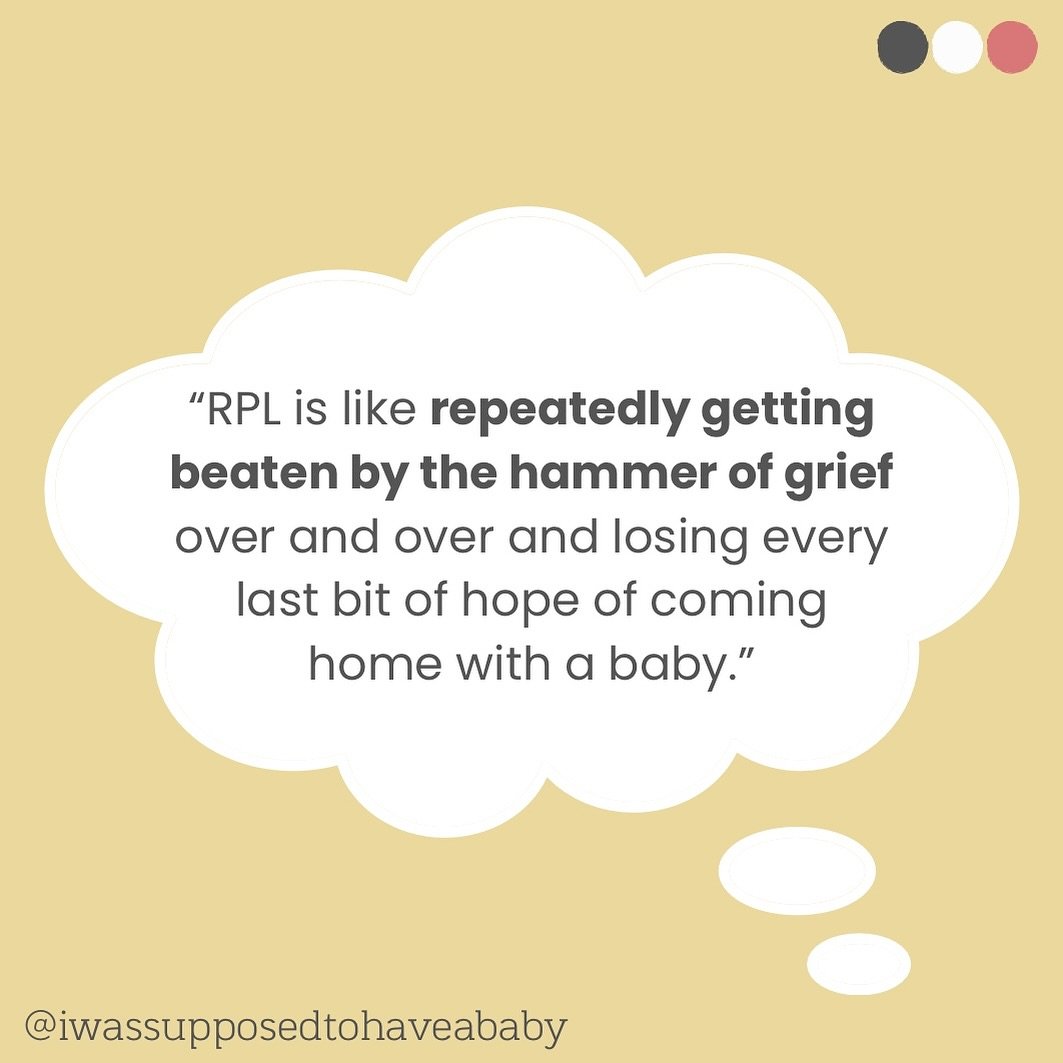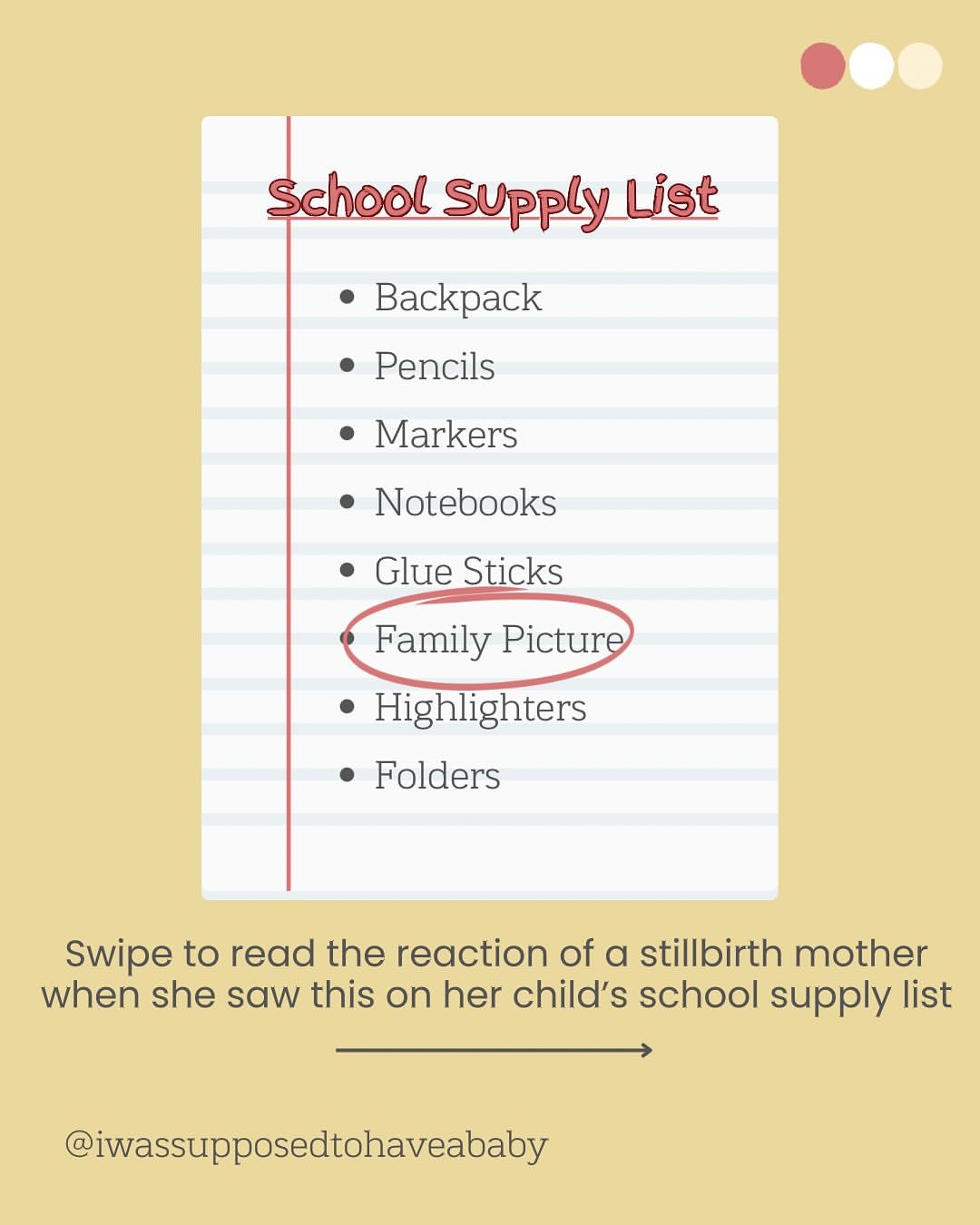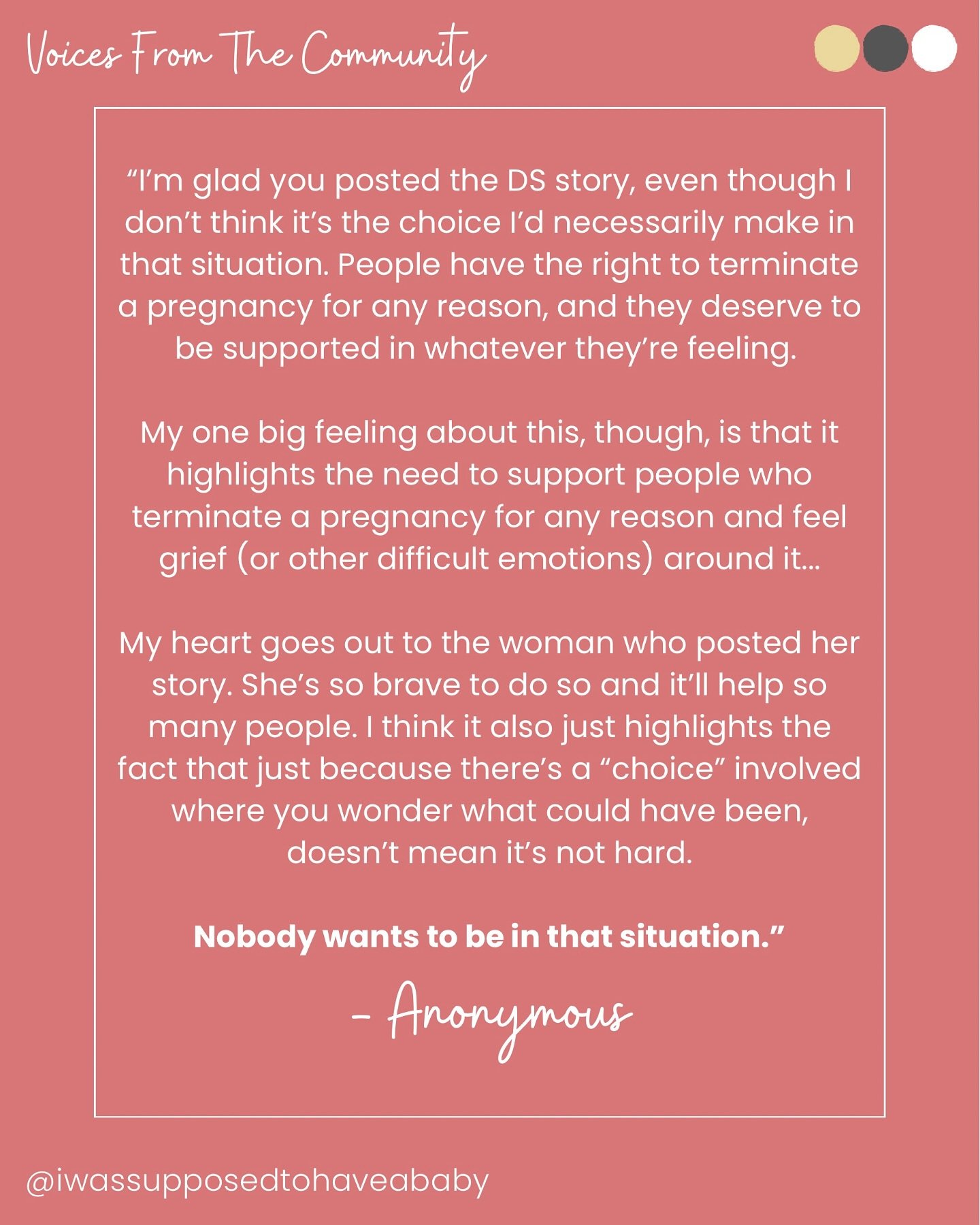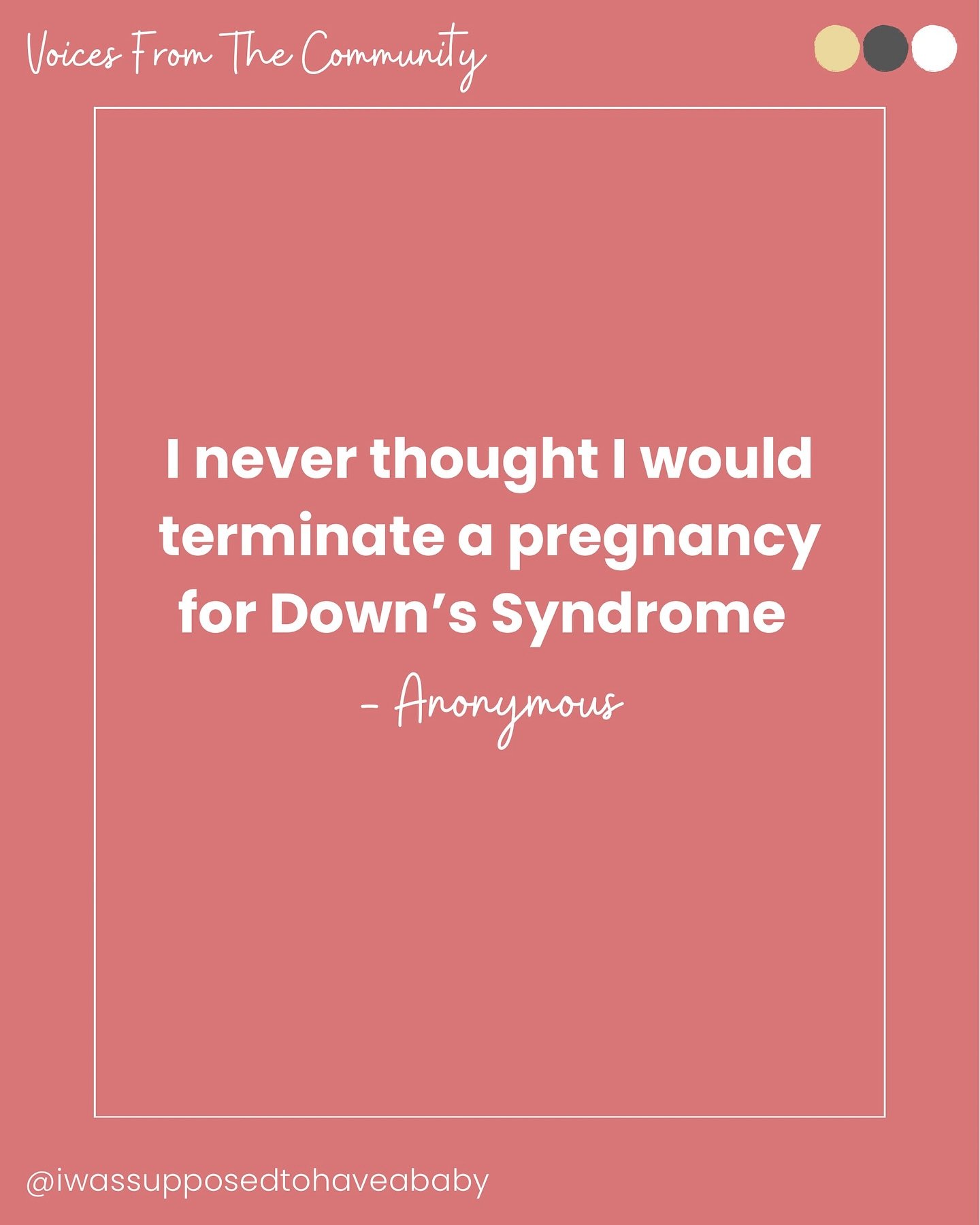
Fertility Resource Library
Browse all of our supportive content across a variety of topics. Whether you’re looking to feel validated, need advice, or just need a break, we’ve got something for everyone.
In a recent IWSTHAB survey, participants shared how our resources have supported their fertility journeys:
89% said that IWSTHAB helped them know where to turn and feel more empowered to seek support and resources.
93% would recommend IWSTHAB’s resources to others in the Jewish community on a fertility journey.
This Resource Library is a big piece of what people use during their struggles, so please let us know if you think we are missing any topics.
Jump to:
Adoption • Body Image • Cancer • Childless Not By Choice • Circumstantial Infertility • Donor Conception • Ectopic and Molar Pregnancy • Egg Freezing • Emotional Support • Endometriosis • Genetics • Grief • Holidays • How to Support • Humor • Infertility • IUI • IVF • LGBTQ+ • Male Factor Infertility • Mikvah, Niddah & Intimacy • Miscarriage • PCOS • Personal Stories • Pregnancy After Loss • Pregnancy Announcements • Recurrent Loss • Relationships and Friendships • Religion and Faith • Secondary Infertility • Self-Care • Singles • Single Mothers By Choice • Stillbirth • Surrogacy • Termination for Medical Reasons • Third Party Reproduction •
Adoption
Rachel Shanken joins Aimee Baron, MD to talk about her journey to becoming an adoptive parent, something she never envisioned herself doing, the heartbreaking conversation as a single woman in her 30s when her doctors said that she may never have biological children and how she got married, but then struggled through the ups and downs of umpteen failed cycles to try to get pregnant.
What are some things that Jewish adoptees and families wish their communities knew?
This eye-opening resource comes from the Adoption and Jewish Identity Project @adoptionjewishidentity which was borne out of research they did, from surveys and oral histories they took from a diverse group of Jewish adoptees raised in American Jewish families.
Many people consider adoption not because they ran out of options.
They adopt because they want to give a child a loving home.
Body Image
Rachel Goldberg LMFT, PMH joins Aimee Baron, MD to talk about binge and restrictive eating habits and how that can affect fertility, the reasons why disordered eating or exercise can cause fertility issues, the guilt and shame that go along with this these diagnoses, and the small changes suggestions people can make to try to get them out of a destructive feeding pattern.
Reva Schlanger Peyser MS, RD, CDN joins Aimee Baron, MD to talk about a myriad of issues surrounding fertility in regard to body image and eating disorders, how people feel like their body is failing them during the struggle to build a family and how people might use eating, nutrition, exercise to try to take back some control.
There are many different ways our relationship with our body changes because of all that we go through to grow our family. It’s normal to struggle with the changes your body goes through along the way.
Cancer
This story gives an insight into one woman’s feelings as she prepares for her last visit to the mikvah (ritual bath), a necessity in orthodox communities before husband and wife reunite.
Here is a woman’s story of a surgery to remove a tumor that ended in hysterectomy and her feelings about no longer being able to have her own children afterwards.
“After denying that anything was wrong and then realizing that so much was wrong, I spent the next few months going to doctors and and getting tests.”
Childless Not By Choice
This is why we share voices from the community.
To tell the untold stories. Every person has their own journey with fertility. Some have happy endings… and some don’t.
Part of mental health is also acknowledging that you may not be where you want to be eventually, but you still have to take care of yourself here — now.
Whether you are pushing yourself to attend this something or whether you're staying in to avoid all the negative feelings that come when you do show up, we see you.
Circumstantial Infertility
Another voice from our community ❤️🩹 thank you for your vulnerability. Leave some love and comfort in the comments
#yourstory #infertility #fertilityjourney #infertilitystory #selfcare #circumstantialinfertility #mentalhealth #selflove
Thank you so much to @sam_ster_ela for sharing her circumstantial infertility story with us. We’re holding you and everyone dealing with this pain 🫂🫂🫂
It doesn't change the fact that I wish I didn't need to be on birth control. That my vision of having a large family isn't realistic for me. That I am dealing with a mental illness.
Donor Conception
Parents who are choosing to use a donor for their child are thinking exactly the same way. They want to be parents more than they want to share their DNA.
These are some of the things that parents think about when considering using a donor (and things that other people think when you share you are going the donor route)
"We failed 11 IVF's at 4 different prominent fertility clinics with my own eggs, before we even considered donor eggs- what a difference it is going for a transfer being pretty confident that I'll end up pregnant!"
Ectopic and Molar Pregnancy
How does one move on from here? While her story is unique, there are so many pieces that are not. The fear. The pain. The loss of control. Powerlessness. Feeling that your body betrayed you. The unknown.
This is the a story of molar pregnancy. Please read with kindness and sensitivity in your heart, because this woman is in deep pain.
Read one woman's story about an extopic pregnancy and needing mental health support 10 years later because of the trauma it caused.
Egg Freezing
Thank you so much to this follower for sharing this deeply moving piece 💔❤️🩹
#jewishwomen #jewishwoman #miscarriage #stillbirth #fertility #infertility #infertilitysupport #fertilityjourney #support #groups #loss #pain #grief #reminder #surrogate #surrogacy #tfmr #trimester #pregnant #pregnancy #pregnancyloss #recurrentloss #insensitive #comments #personal #story #community
We’re reflecting on the many thoughts and emotions that come with egg freezing. These are merely a handful.
Ellie Levi, joins Aimee Baron, MD to talk about her story of becoming a SIM: Single Intentional Mom to her 3 year old daughter, Ayelet HaShachar, her thought process and emotions about each stage of the process and the experience of being one of the first to her freeze eggs in her community.
Emotional Support
When you’re struggling to build your family, it’s so easy to get caught in a cycle of judgment. We judge ourselves for not being “strong enough.” We judge our partners. We judge friends who mean well but say the wrong thing. Sometimes, we even judge life itself for being so unfair.
This journey can send us into panic and desperation, riding an emotional rollercoaster that takes our self-esteem up and down. And before we know it, we’re stuck in the blame game—blaming ourselves, others, or anyone in reach.
As we enter the holidays, we want to invite you to think about forgiveness—not as some grand, sweeping gesture, but as a gentle starting point. Forgiving ourselves for not being perfect. Forgiving others for fumbling their words or not understanding. Forgiving the idea that this process has to look a certain way.
Take a moment to recognize just how much you’ve already carried. Remind yourself that you’re human, and you’ve shown tremendous strength in simply continuing forward, no matter how hard it’s been.
And one more thing: please forgive us, too. We know we haven’t always been everything you needed this year.
💔Sometimes your messages went unanswered, or took too long.
💔Sometimes a program, a post, or a speaker didn’t land right.
💔Sometimes our words might have hurt when we wanted them to comfort.
For those moments, we are deeply sorry. Our intention has always been to hold you with love and remind you that you are seen and not alone.
Xoxo,
Aimee
Forgiveness | high holidays | Yom Kippur | fertility support | Jewish fertility | Jewish holiday | day of forgiveness | ivf | miscarriage | stillbirth
This time of year is so complex and filled with such a mix of emotions. This submission so beautifully captures what’s been on our hearts during these weeks.
Infertility and loss community | fertility journey | Jewish women | high holidays | hope | infertility life
This anonymous author beautifully outlines the many emotions this time of year ❤️🩹
Give yourself the space to feel it all, we’ll be here to hold you through it
#jewishnewyear #ivf #miscarriage #ttc #primaryinfertility #jewishwomen
Endometriosis
Rachel Daar Cohen joins Aimee Baron, MD to talk about a powerful, raw, and deeply emotional story of resilience after a tremendous amount of struggle, her struggle with infertility, trauma, grief, addiction, and endometriosis and how kindness is so important as we never know what people are really going through.
“I first started having symptoms back when I got my first period at 13. Ever since then, I remember excruciating pain and my Dr telling me to take 2 days off from school.”
“176 million women live with endometriosis and I am one of them. To me, this enigmatic and commonly misunderstood disease is a symbol of so much more than a simple illness.”
Genetics
Navigating fertility and genetic challenges can be overwhelming, and the emotions that come with them are just as complex.
Podcast Collaboration with Jscreen
It’s hard to put all 5,000 thoughts that run through our minds during the two week wait into one graphic. But we tried to capture the essence.
Grief
This time of year is so complex and filled with such a mix of emotions. This submission so beautifully captures what’s been on our hearts during these weeks.
Infertility and loss community | fertility journey | Jewish women | high holidays | hope | infertility life
This anonymous author beautifully outlines the many emotions this time of year ❤️🩹
Give yourself the space to feel it all, we’ll be here to hold you through it
#jewishnewyear #ivf #miscarriage #ttc #primaryinfertility #jewishwomen
Just a little background for those of you who are new here…
❤️Feel free to ask me any questions!❤️
#infertility #miscarriage #pregnancyloss #jewishwomen #jewishwoman #nonprofitsofinstagram #jewishcommunity #fertilitysupport #fertilityjourney
Holidays
Tonight begins Yom Kippur, the holiest day of the year.
And sometimes more than the themes of atonement and forgiveness, people tend to focus on the food...or lack thereof.
What are you eating pre-fast?
You’re not having bagels and lox after?
How about grapes or melon?
You like gatorade before?
I can’t even eat something heavy when it’s done...I only have soup.
It’s so hard. How much more time?
And on and on and on and on.
But more than that, all these questions assume that everyone fasts. Which is absolutely not the case.
So here’s a quick reminder that it’s none of your business if someone is or is not fasting.
So on behalf of everyone who doesn’t want to talk about it (in the fertility community and beyond - those with eating disorders or other mental/physical health challenges), please don’t ask.
Ever.
Yom Kippur | Jewish fast | infertility treatment | ttc | ivf | pregnancy announcement | fertility clinic | infertility journey
It’s that time again, and we know so many of you can’t help but take stock of where you are compared to where you hoped you would be.
Wherever you find yourself this yom tov (holiday) season, know we’re right here with you.
Bring the anger, bring the tears, bring the silence - because that counts as prayer too. And please be gentle with the part of you that’s hurting.
Yom Kippur | high holidays | forgiveness | ttc | miscarriage | primary infertility | Jewish women | Orthodox Jews
Sending my love to all of you for a peaceful, restful, shabbos.
And please be gentle with yourself xoxo
❤️ Aimee
How to Support
In a week that has been particularly heavy, I send you all my love and hugs. Hope you can find pockets of peace and joy this Shabbos ❤️
Xoxo,
Aimee
#fridayfeels
Last week, we started creating a new “cheat sheet” series for different points in a fertility journey and for moments in the Jewish calendar that can feel especially heavy. Each one has practical ideas for getting through. (More coming next week!)
The plan was to post this today, but I was too overwhelmed with the news and needed to lean on my own advice to be able to show up here again.
I got outside and walked a bit. Drank some water. Had some yummy babka. Texted a friend. Decided not to do any cooking for RH today. And just let my mind veg.
Because the world is so heavy right now that I just couldn’t.
And when you can’t either, here’s something you can come back to.
#emotionallydrained #selfcarematters #feelingdrained #miscarriage #tfmr #adoption #donorconceived #ivf #jewishcommunity #jewishwomen #secondaryinfertility #childlessnotbychoice
Asking for help isn’t a burden.
No one likes standing by watching by while you’re in pain. If anything, you’re giving people the job they secretly want: feeling useful.
Even if that just means showing up with snacks.
#fertilityjourney #infertilitysupport #primaryinfertility #jewishwomen #jewishfamily
Humor
How many times have you wanted to give *that* person a snippy remark after they made you feel bad, but you just couldn’t think of one at the time? Here’s the post for you.
Please... Just talk about sushi at the shmorg. Or the decor.The dresses that they are wearing. How nice it is to see cousins from the other side of the family. All about Aunt Rachel's new apartment. Your nephew's new job. What your granddaughter is learning in school.
Liz Glazer joins Aimee Baron, MD to talk about the moment when everything changed, when her daughter, Leo Pearl, was stillborn and the aftermath, and growing up not knowing if she was ever going to be able to have a family.
Infertility
There are some people who WISH they could have even a tiny bit of what you have. Please be kind.
Primary infertility | miscarriages | recurrent loss | stillbirth | baby loss | back to school | end of summer | Jewish women | Jewish family
You can always tell us. Thank you for sharing your story - we are holding you ❤️🩹🫂
#jewishwomen #jewishwoman #miscarriage #stillbirth #fertility #infertility #infertilitysupport #fertilityjourney #support #groups #loss #pain #grief #reminder #surrogate #surrogacy #tfmr #trimester #pregnant #pregnancy #pregnancyloss #recurrentloss #personal #story #community #chronicillness #chronic #undiagnosed #chemicalpregnancy
You don’t need perfect words to support someone through infertility or loss.
You just need to show up. Gently. Consistently. Without pressure or expectation.
💗Sometimes that looks like a heartfelt check-in.
🥤Sometimes it looks like iced coffee on the porch.
🫂Sometimes it’s just letting them know they’re not alone.
This carousel is packed with real texts you can send when someone you love is hurting.
Copy, paste, tweak. Whatever you do, just don’t stay silent.
Because silence can feel like abandonment. And no one deserves to be “left on read.”
Help us keep showing up for everyone in our community who needs our support. Donate to our fundraiser today.
LGBTQ
Challenging norms, holding onto their values, and showing that there’s more than one way to be a family in the Orthodox world.
IUI
Holding space for this anonymous follower and all of you who feel like you’re not worthy to be in this community. You don’t know if you have a place.
Almost all infertility stories talk about the difficulty of IVF. But what about IUI (intrauterine insemination)? Here a woman writes about her feelings going through multiple rounds of IUI. ⠀⠀⠀⠀⠀⠀⠀⠀⠀
It’s hard to put all 5,000 thoughts that run through our minds during the two week wait into one graphic. But we tried to capture the essence.
IVF
And just like that, the future we had started building fell out from under us.
The mush of feelings is exhausting 💔
So many ups. So many more downs.
Thank you to this follower for sharing her story 🫂
Men’s Resources
Men are half the equation when it comes to making a baby…and they carry half the heartbreak too. Just because they don’t talk about it as much, doesn’t mean that they’re not aching.
We asked the I Was Supposed To Have A Baby Community how the men in their life are dealing with fertility stuff. Here are some of the responses.
Ejaculatory dysfunction isn’t talked about enough, so we’re honored to share this story with the IWSTHAB community.
Mikvah, Niddah & Intimacy
A heartbreaking anonymous story gives an insight into one woman’s feelings as she prepares for her visit to the mikvah (ritual bath), a necessity in orthodox communities before husband and wife reunite. This immersion happens after a woman finishes menstruating, and it renders her ritually clean to have sex again.
⠀⠀⠀⠀⠀⠀⠀⠀⠀
This process is deeply painful for those who are not able to get pregnant or for those who have lost a pregnancy, as it is a monthly reminder that their bodies are not carrying a child. (When someone is pregnant, she usually does not menstruate, therefore she does not have to go to the mikvah).
This writer shares all of her emotions, as she dips in the water.
PSA: This next story about Halachic infertility is hard to read.
For those of you who spend every waking moment steeped in Jewish law, following its every edit with all of its nuances, it’s difficult to contemplate someone who doesn’t take it as seriously as you.
And we know that it’s probably going to be even more difficult hearing from some one who chose to turn away from Halacha (jewish law). This someone tried every possible way to stay within the confines of what the law was saying, but instead felt isolated, angered, depressed and shut down. She chose to do what she needed to do for her mental health.
And why are we sharing her story? Because IWSTHAB’s mission is to hold space, comfort and validate anyone who is struggling to have a child. And in this case, the anger and disillusionment are the emotions that need to be supported.
Also, we want to remind all of you that when you ask “How many children do you have?” you really have NO IDEA what people are going through, and how hard it is for them to get through one single day. Because if you had a window into our DM’s, you would see that this woman is not the only one who is trying her best to straddle her desire to have a family with the confines of jewish law.
The mikvah can be a deeply emotional experience—especially for those navigating infertility, loss, or pain. Even well-meaning comments can unintentionally cause hurt.
This post is a gentle reminder: when in doubt, keep it simple.
Be supportive. Be respectful. Most importantly, be quiet when silence is more healing than words.
Miscarriage
Here are some grief books we recommend
Thank you to this follower for sharing this beautifully devastating poem 💔🫂
So many ups. So many more downs.
Thank you to this follower for sharing her story 🫂
PCOS
Shaina Glick joins Aimee Baron, MD to talk about her two children and the very different fertility journey that she had to take to have each of them, the first one that was “relatively” easy, and the other, which was much more difficult, and the years of treatments she went through and a miscarriage.
Personal Stories
This time of year is so complex and filled with such a mix of emotions. This submission so beautifully captures what’s been on our hearts during these weeks.
Infertility and loss community | fertility journey | Jewish women | high holidays | hope | infertility life
This anonymous author beautifully outlines the many emotions this time of year ❤️🩹
Give yourself the space to feel it all, we’ll be here to hold you through it
#jewishnewyear #ivf #miscarriage #ttc #primaryinfertility #jewishwomen
PSA: in this space, you don’t need to have it all together ❤️🩹
#primaryinfertility #pregnancyafterloss #jewishfamilies #jewishnonprofit #fertilityjourney #infertilitycommunity
Pregnancy After Loss
You are going to get through this.
If you’re holding your breath between appointments, you’re not alone.
Pregnancy after infertility is holding onto so many emotions
Pregnancy Announcements
There is no “right” time or way, only what is best for you.
Sharing your joy while honoring someone’s pain takes care and compassion.
How To Announce A Pregnancy To Someone Going Through Infertility
Recurrent Loss
You will always make it through
These are the voices of our community finding the strength to go on after recurrent loss.
The type of pain no one should have to experience.
Relationships and Friendships
So many of you have written about your relationships and marriages being strained through the journey of infertility or after a loss, that it’s worth mentioning here.
“I’ve never told a single soul this, but the biggest reason I don’t want to do IVF is because I don’t think my marriage is strong enough to endure it.”
“Yet, we don't have kids to play with their kids at shabbos meals, go to afternoon activities with, or go to museums with. We have tried to fit in, but maybe it's better to not even try.”
Religion and Faith
We asked our IWSTHAB community how their relationships have shifted since beginning their fertility journeys—and the responses were raw, real, and deeply human.
Infertility is hard. Pregnancy loss is hard. The journey to build a family is hard. Make sure to take breaks. You deserve them.
Send love.💗
Send support. 🤗
Send hugs 🫂
…to some of the people who need it most this holiday
Secondary Infertility
Here are some of the infertility books that we have listed there — all from authors that we’ve personally interviewed.
So many ups. So many more downs.
Thank you to this follower for sharing her story 🫂
Thank you to this incredibly brave woman for sharing her story.
Self-Care
When you’re struggling to build your family, it’s so easy to get caught in a cycle of judgment. We judge ourselves for not being “strong enough.” We judge our partners. We judge friends who mean well but say the wrong thing. Sometimes, we even judge life itself for being so unfair.
This journey can send us into panic and desperation, riding an emotional rollercoaster that takes our self-esteem up and down. And before we know it, we’re stuck in the blame game—blaming ourselves, others, or anyone in reach.
As we enter the holidays, we want to invite you to think about forgiveness—not as some grand, sweeping gesture, but as a gentle starting point. Forgiving ourselves for not being perfect. Forgiving others for fumbling their words or not understanding. Forgiving the idea that this process has to look a certain way.
Take a moment to recognize just how much you’ve already carried. Remind yourself that you’re human, and you’ve shown tremendous strength in simply continuing forward, no matter how hard it’s been.
And one more thing: please forgive us, too. We know we haven’t always been everything you needed this year.
💔Sometimes your messages went unanswered, or took too long.
💔Sometimes a program, a post, or a speaker didn’t land right.
💔Sometimes our words might have hurt when we wanted them to comfort.
For those moments, we are deeply sorry. Our intention has always been to hold you with love and remind you that you are seen and not alone.
Xoxo,
Aimee
Forgiveness | high holidays | Yom Kippur | fertility support | Jewish fertility | Jewish holiday | day of forgiveness | ivf | miscarriage | stillbirth
This time of year is so complex and filled with such a mix of emotions. This submission so beautifully captures what’s been on our hearts during these weeks.
Infertility and loss community | fertility journey | Jewish women | high holidays | hope | infertility life
This anonymous author beautifully outlines the many emotions this time of year ❤️🩹
Give yourself the space to feel it all, we’ll be here to hold you through it
#jewishnewyear #ivf #miscarriage #ttc #primaryinfertility #jewishwomen
Singles
She always knew she wanted to be a mom.
Even without a partner.
Even after loss.
It hasn’t been easy — but she’s still here, still hoping, still trying.
Sometimes, the hardest part of the journey is sitting with the grief, acknowledging the feelings, and giving yourself space to process. 💔
Especially as an older single navigating decisions like egg freezing or considering becoming a single mother by choice, know that your emotions are valid and processing it all takes time. Don’t push yourself to make a decision quickly. Be gentle as you come to terms with this next stage of your life.
“I've learned so much about myself through this journey. I wish it never happened, but at the same time I have grown more than I could have imagined.”
Single Mothers By Choice
She always knew she wanted to be a mom.
Even without a partner.
Even after loss.
It hasn’t been easy — but she’s still here, still hoping, still trying.
Ellie Levi, joins Aimee Baron, MD to talk about her story of becoming a SIM: Single Intentional Mom to her 3 year old daughter, Ayelet HaShachar, her thought process and emotions about each stage of the process and the experience of being one of the first to her freeze eggs in her community.
Michelle (Malka) Grunstein, LMFT CATC-IV, joins Aimee Baron, MD to talk about how she has always known that she wants to be a mother, how she decided that by the time she was 30, if she didn't meet someone, she would take steps to do this by herself and her multiple failed relationships including a broken engagement.
Stillbirth
Read this stillbirth mother’s reaction to seeing a request for a family picture on her child’s school supply list ❤️🩹
In the infertility and loss community, back-to-school is filled with emotions and challenges.
#backtoschool #summerbreak #infertilityjourney #stillbirth #miscarriage #secondaryinfertility #jewishwomen #jewishfamily
You can always tell us. Thank you for sharing your story - we are holding you ❤️🩹🫂
#jewishwomen #jewishwoman #miscarriage #stillbirth #fertility #infertility #infertilitysupport #fertilityjourney #support #groups #loss #pain #grief #reminder #surrogate #surrogacy #tfmr #trimester #pregnant #pregnancy #pregnancyloss #recurrentloss #personal #story #community #chronicillness #chronic #undiagnosed #chemicalpregnancy
She always knew she wanted to be a mom.
Even without a partner.
Even after loss.
It hasn’t been easy — but she’s still here, still hoping, still trying.
Surrogacy
We’ve unpacked it all when it comes to surrogacy—one episode at a time.
Because let’s be real—family-building isn’t a ‘just’ situation. Every journey is unique, and kindness goes a long way.
Termination for Medical Reasons
Before you judge, pause.
These parents are already carrying more than most ever will.
Nobody Wants To Be In That Situation
I Never Thought I Would Terminate A Pregnancy for Down’s Syndrome
Third Party Reproduction
Parents who are choosing to use a donor for their child are thinking exactly the same way. They want to be parents more than they want to share their DNA.
These are some of the things that parents think about when considering using a donor (and things that other people think when you share you are going the donor route)
"We failed 11 IVF's at 4 different prominent fertility clinics with my own eggs, before we even considered donor eggs- what a difference it is going for a transfer being pretty confident that I'll end up pregnant!"
What Not To Say
The mikvah can be a deeply emotional experience—especially for those navigating infertility, loss, or pain. Even well-meaning comments can unintentionally cause hurt.
This post is a gentle reminder: when in doubt, keep it simple.
Be supportive. Be respectful. Most importantly, be quiet when silence is more healing than words.
Spoiler alert: we don’t.
Someone else’s fertility journey isn’t the place for your dreams of grandkids, nieces, or nephews.
